Shows
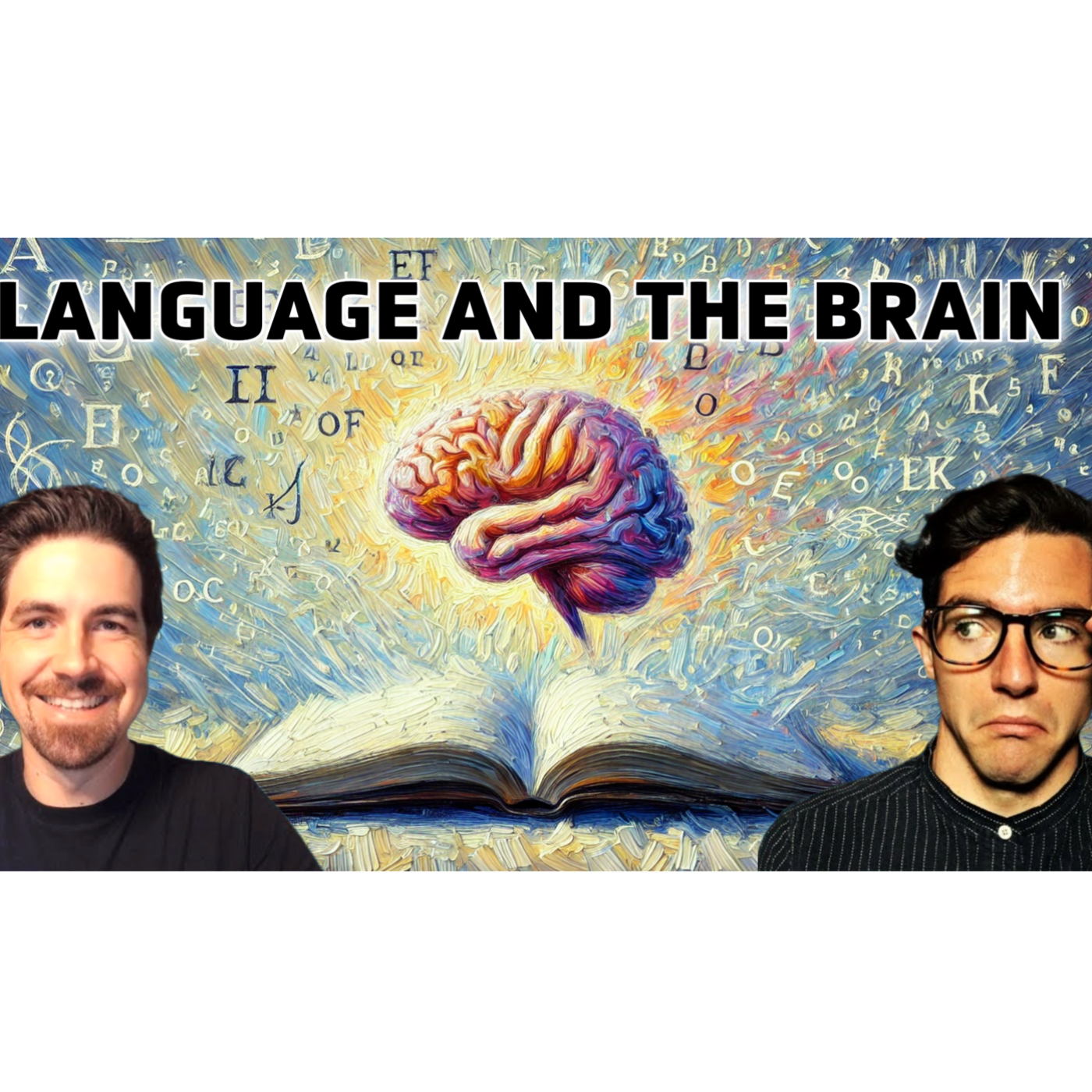 The Social BrainThe Human Brain’s Greatest Invention: The Neuroscience of LanguageSomething fascinating is happening as you watch this video. You are effortlessly converting a series of sounds into meaningful thoughts. To do that, your brain has to take a sound wave–a collection of frequencies streaming into your ears–and somehow extract from it a specific message that I’m trying to convey to you right now. Just as mysteriously, you could mute this video and turn on subtitles and get the same message. As a literate person, you effortlessly take in strings of visual shapes and decode them into meaningful information. As humans, we take language for granted and it...2024-07-191h 07
The Social BrainThe Human Brain’s Greatest Invention: The Neuroscience of LanguageSomething fascinating is happening as you watch this video. You are effortlessly converting a series of sounds into meaningful thoughts. To do that, your brain has to take a sound wave–a collection of frequencies streaming into your ears–and somehow extract from it a specific message that I’m trying to convey to you right now. Just as mysteriously, you could mute this video and turn on subtitles and get the same message. As a literate person, you effortlessly take in strings of visual shapes and decode them into meaningful information. As humans, we take language for granted and it...2024-07-191h 07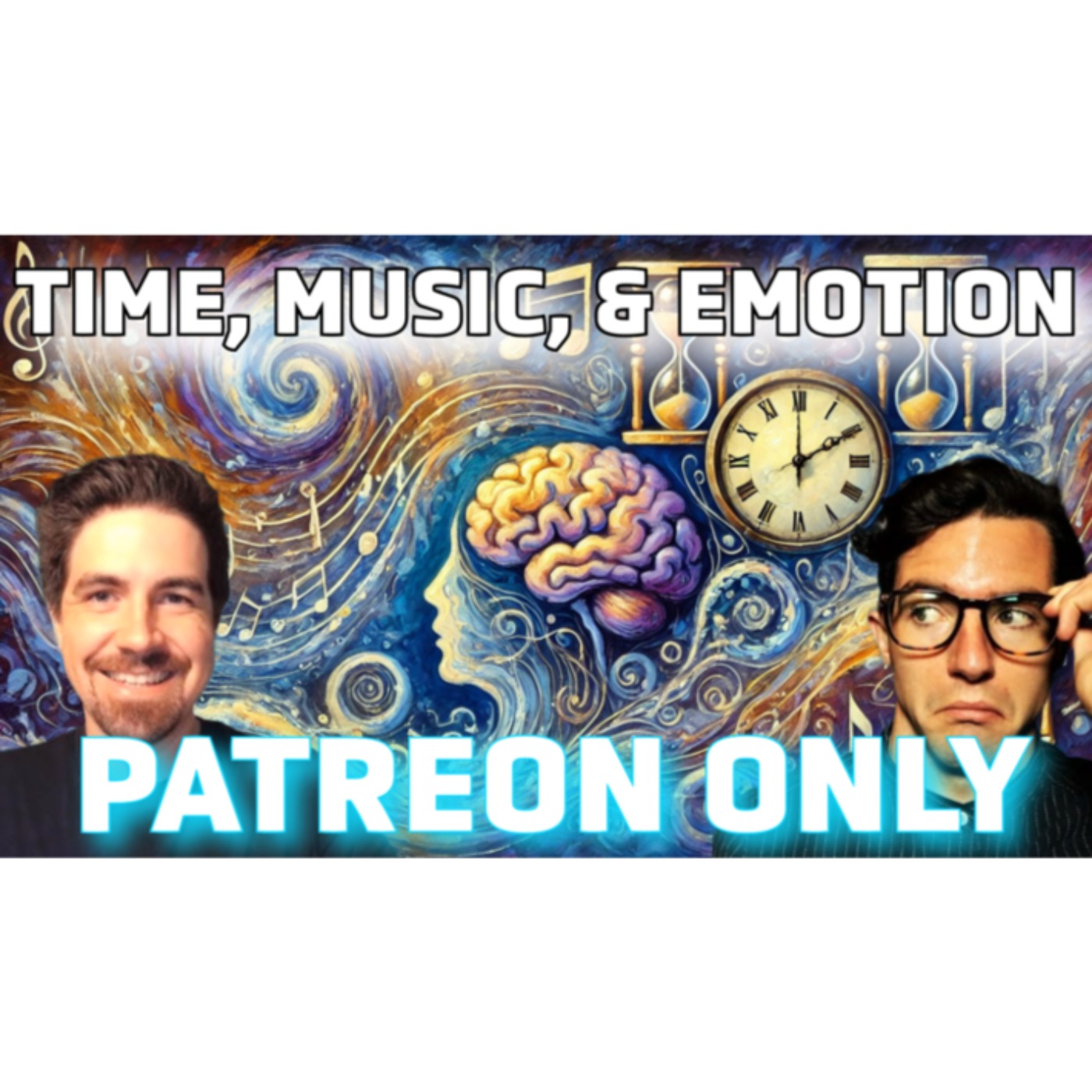 The Social BrainTime, Music, and The Brain (Patreon Only - First Half Preview)If you’re reading this, then you’re listening to the public version of this video, so if you want to watch the second half, go to: https://www.patreon.com/thesocialbrain and sign up for the “Premium” tier. You’ll get access to every exclusive Patreon-only episode of The Social Brain!In this episode, we discuss the neuroscience of time, music, free will, emotions, memory, the self, and what we've learned from our research on these topics.2024-07-0825 min
The Social BrainTime, Music, and The Brain (Patreon Only - First Half Preview)If you’re reading this, then you’re listening to the public version of this video, so if you want to watch the second half, go to: https://www.patreon.com/thesocialbrain and sign up for the “Premium” tier. You’ll get access to every exclusive Patreon-only episode of The Social Brain!In this episode, we discuss the neuroscience of time, music, free will, emotions, memory, the self, and what we've learned from our research on these topics.2024-07-0825 min Sense of MindTime, Music, and The Brain (The Social Brain - Patreon ep 5)In this episode, we discuss the neuroscience of time, music, free will, emotions, memory, the self, and what we've learned from our research on these topics.
If you’re reading this, then you’re watching the public version of this video, so if you want to watch the second half, go to https://www.patreon.com/thesocialbrain and sign up for the “Premium” tier. You’ll get access to every exclusive Patreon-only episode of The Social Brain!
--
Please support this channel by signing up for Sense of Mind's Patreon and get bonus content every month: htt...2024-07-0825 min
Sense of MindTime, Music, and The Brain (The Social Brain - Patreon ep 5)In this episode, we discuss the neuroscience of time, music, free will, emotions, memory, the self, and what we've learned from our research on these topics.
If you’re reading this, then you’re watching the public version of this video, so if you want to watch the second half, go to https://www.patreon.com/thesocialbrain and sign up for the “Premium” tier. You’ll get access to every exclusive Patreon-only episode of The Social Brain!
--
Please support this channel by signing up for Sense of Mind's Patreon and get bonus content every month: htt...2024-07-0825 min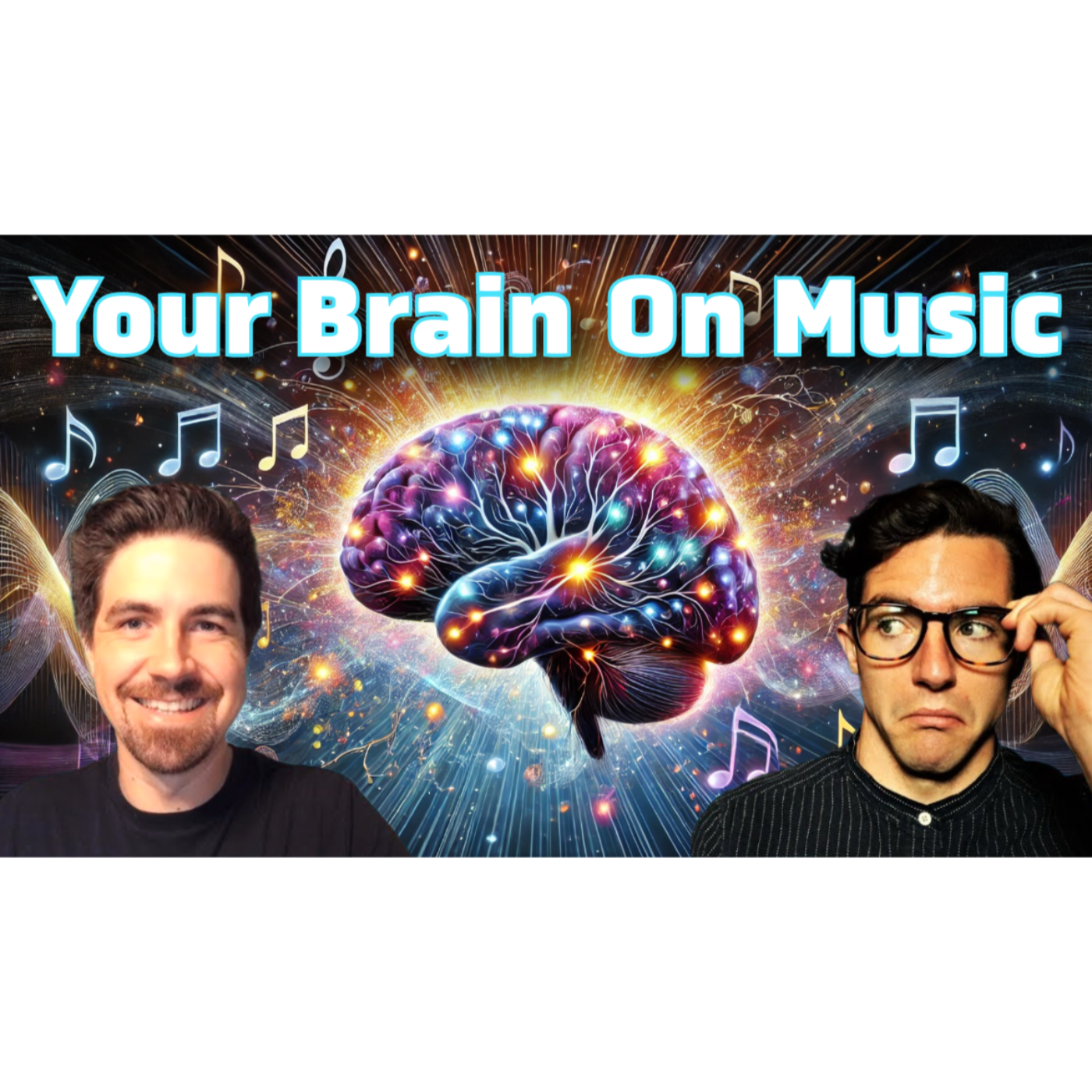 The Social BrainHow Music Shapes Our Brain and IdentityImagine a world without music—a world devoid of melody, rhythm, and harmony. Music is not just a form of entertainment; it's a profound element of human existence that transcends cultural boundaries and historical epochs. From the ancient flutes carved by our ancestors to the digital symphonies of today, music has been a constant companion in our journey as a species. But what makes music so extraordinary?The answer lies within the intricate pathways of our brain. Music has a unique ability to evoke powerful emotions, bring back distant memories, and even heal our bodies. It connects th...2024-06-271h 02
The Social BrainHow Music Shapes Our Brain and IdentityImagine a world without music—a world devoid of melody, rhythm, and harmony. Music is not just a form of entertainment; it's a profound element of human existence that transcends cultural boundaries and historical epochs. From the ancient flutes carved by our ancestors to the digital symphonies of today, music has been a constant companion in our journey as a species. But what makes music so extraordinary?The answer lies within the intricate pathways of our brain. Music has a unique ability to evoke powerful emotions, bring back distant memories, and even heal our bodies. It connects th...2024-06-271h 02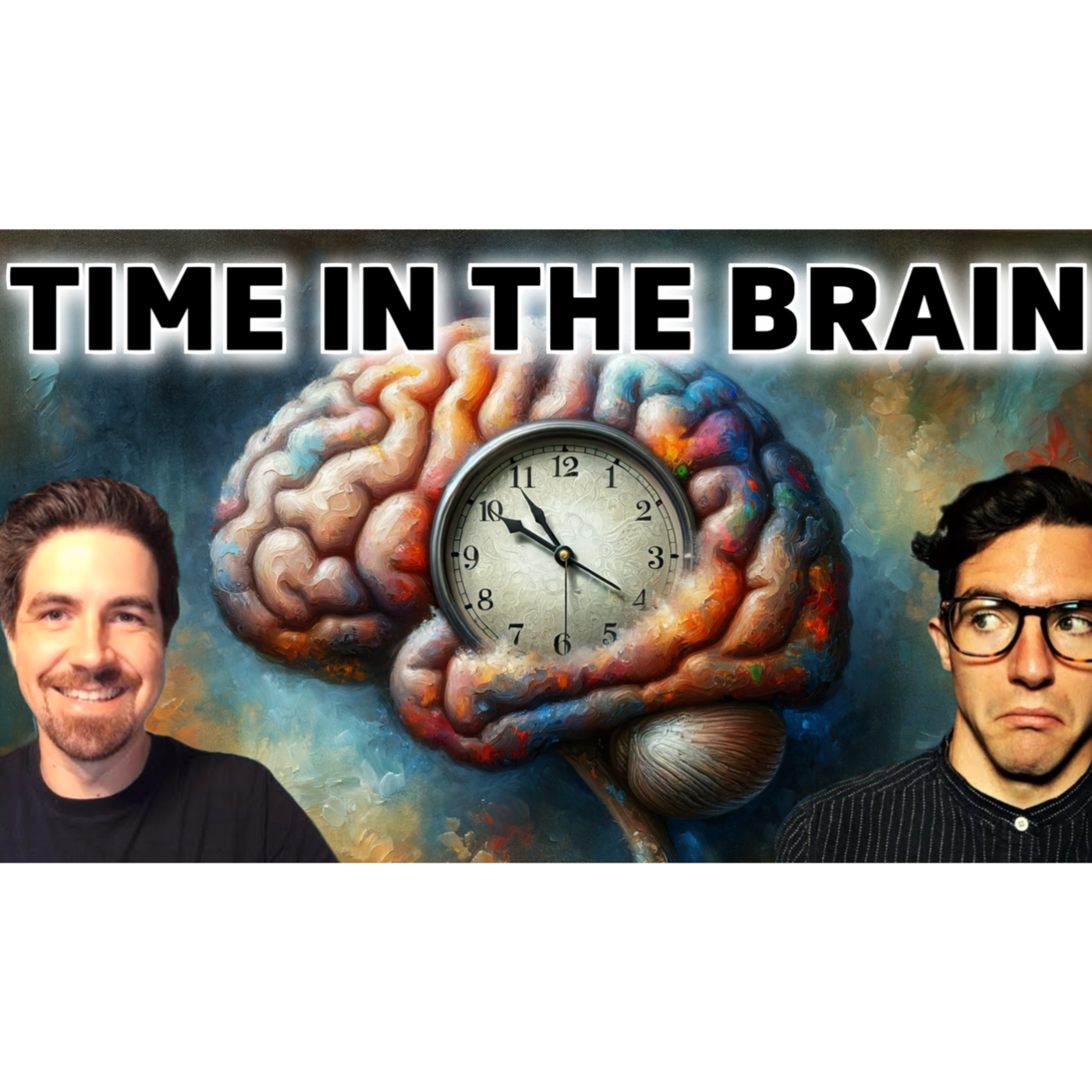 The Social BrainWhere is NOW in the Brain? The Neuroscience of Time (The Social Brain Ep. 40)Time is a limited resource and, in some ways, it’s our only resource in life. But what is time and why does it seem to flow at the rate it does? Why is it that our subjective sense of time can change so dramatically depending on the situation and our state of mind? How does the brain measure and experience time? In this episode, we will explore these questions from a neuroscientific angle and come to some mind-boggling conclusions both about the nature of time and how our brains work.2024-06-101h 00
The Social BrainWhere is NOW in the Brain? The Neuroscience of Time (The Social Brain Ep. 40)Time is a limited resource and, in some ways, it’s our only resource in life. But what is time and why does it seem to flow at the rate it does? Why is it that our subjective sense of time can change so dramatically depending on the situation and our state of mind? How does the brain measure and experience time? In this episode, we will explore these questions from a neuroscientific angle and come to some mind-boggling conclusions both about the nature of time and how our brains work.2024-06-101h 00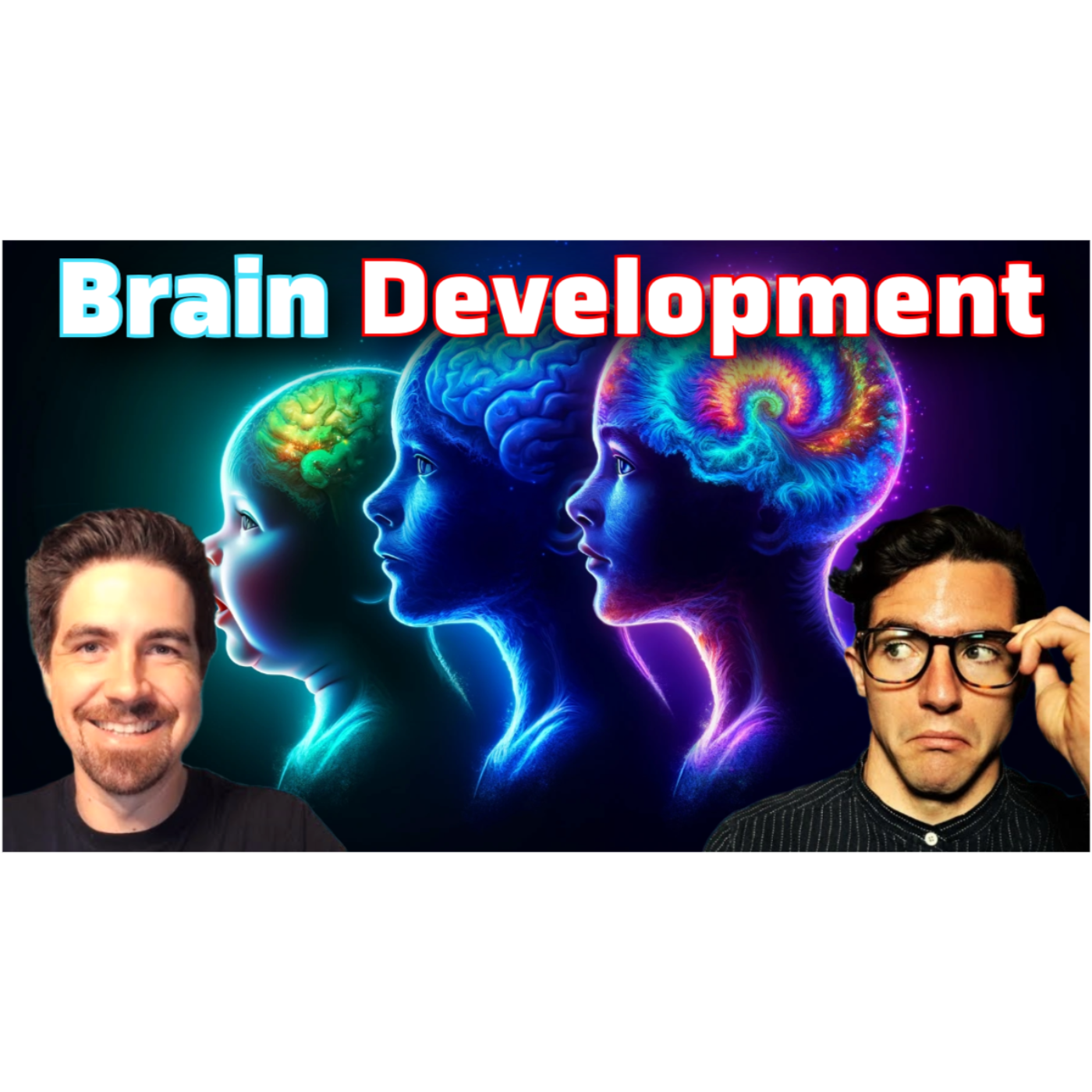 The Social BrainAdolescence: The Brain's Quest for Identity and IndependenceThe narrative surrounding adolescence often paints a picture of turmoil and defiance, suggesting a stage of life fraught with challenges and rebellion. It's a portrayal that resonates deeply in our cultural consciousness, framing these formative years as something to be merely survived rather than embraced. Yet, beneath this surface of stereotypes lies a profound transformation—a critical period of brain development that sets the stage for adulthood. Today, we delve into the complex world of the adolescent brain, a subject that, despite its common portrayal, is far more nuanced and significant than often appreciated. Adolescence is not merely about ho...2024-05-131h 09
The Social BrainAdolescence: The Brain's Quest for Identity and IndependenceThe narrative surrounding adolescence often paints a picture of turmoil and defiance, suggesting a stage of life fraught with challenges and rebellion. It's a portrayal that resonates deeply in our cultural consciousness, framing these formative years as something to be merely survived rather than embraced. Yet, beneath this surface of stereotypes lies a profound transformation—a critical period of brain development that sets the stage for adulthood. Today, we delve into the complex world of the adolescent brain, a subject that, despite its common portrayal, is far more nuanced and significant than often appreciated. Adolescence is not merely about ho...2024-05-131h 09 Sense of MindHuman Evolution & Brain Development (Preview of The Social Brain - Patreon ep 4)In this episode of The Social Brain, we discuss human brain evolution and development, and what we've learned from our research into these topics.
The first half of this episode is available for everyone, but if you want to see the whole episode, sign up for The Social Brain's Patreon page at the Premium tier: https://www.patreon.com/thesocialbrain
(Please note that this is separate from Sense of Mind's Patreon page, because Taylor and I share the revenue from The Social Brain's page.)
--
Please support this channel by signing...2024-05-1324 min
Sense of MindHuman Evolution & Brain Development (Preview of The Social Brain - Patreon ep 4)In this episode of The Social Brain, we discuss human brain evolution and development, and what we've learned from our research into these topics.
The first half of this episode is available for everyone, but if you want to see the whole episode, sign up for The Social Brain's Patreon page at the Premium tier: https://www.patreon.com/thesocialbrain
(Please note that this is separate from Sense of Mind's Patreon page, because Taylor and I share the revenue from The Social Brain's page.)
--
Please support this channel by signing...2024-05-1324 min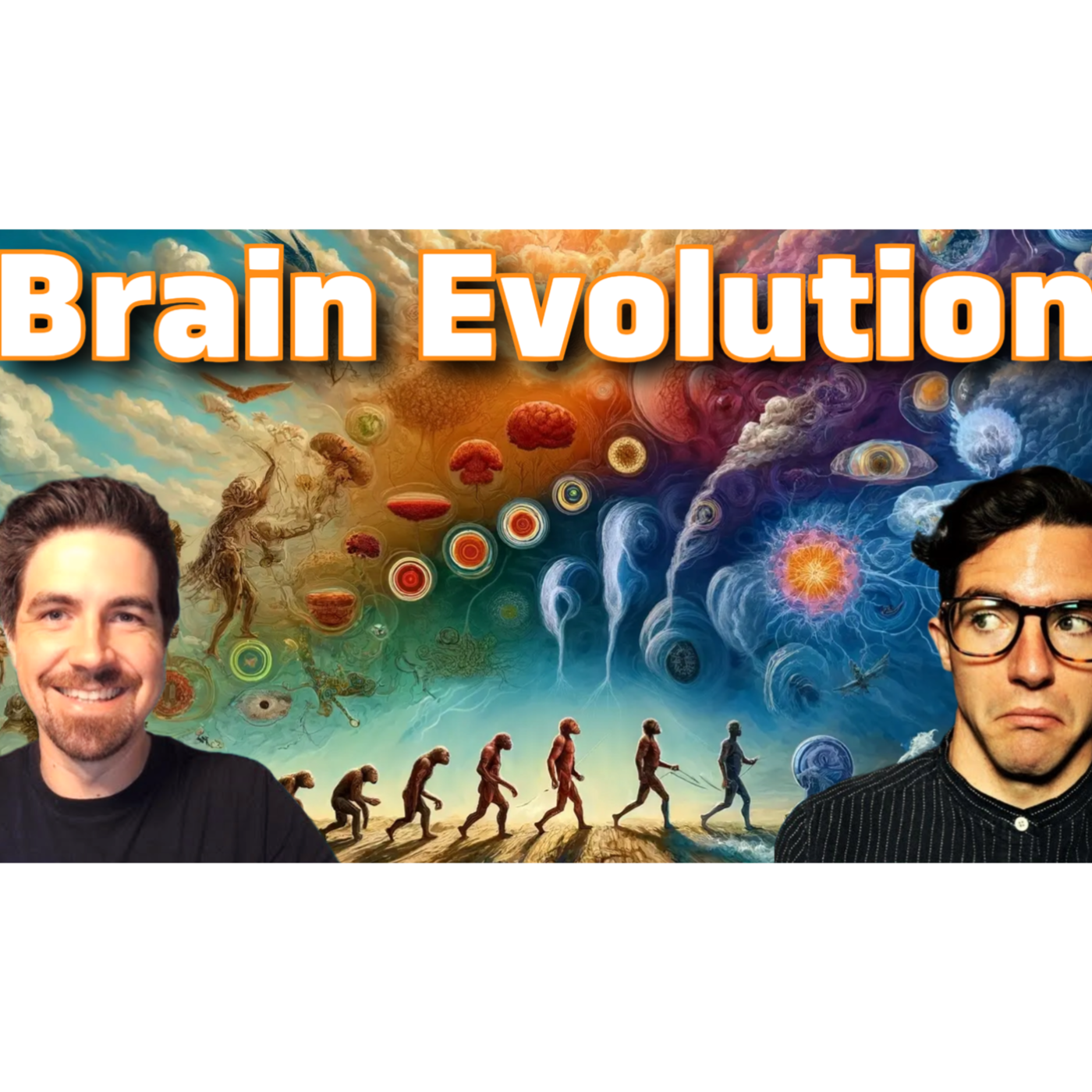 The Social BrainHow The Brain Evolved from Single Celled OrganismsRight now, you are in possession of the most complex thing in the known universe: Your brain. The question is, how could this amazingly advanced biological computer have come about through natural forces? In this episode of The Social Brain, we’re traveling hundreds of millions of years into the past to answer that question. We’ll describe in broad strokes the evolution of single celled organisms all the way to the most intelligent creatures on the planet.2024-04-231h 14
The Social BrainHow The Brain Evolved from Single Celled OrganismsRight now, you are in possession of the most complex thing in the known universe: Your brain. The question is, how could this amazingly advanced biological computer have come about through natural forces? In this episode of The Social Brain, we’re traveling hundreds of millions of years into the past to answer that question. We’ll describe in broad strokes the evolution of single celled organisms all the way to the most intelligent creatures on the planet.2024-04-231h 14 The Social BrainDeciphering Depression: The Role of SerotoninThe rise in depression diagnoses in recent decades is staggering. It's estimated that 1 in 7 in US alone have turned to antidepressants in their quest for relief. This journey often begins with a narrative many of us are familiar with: the theory of a chemical imbalance in our brains. The idea that our brains are somehow "broken" and that these medications can correct that imbalance has been a cornerstone of psychiatric treatment for over 30 years. However, this theory is not without its challenges. Recent studies have questioned the simplicity of the chemical imbalance narrative, suggesting that depression cannot be pinned...2024-04-091h 04
The Social BrainDeciphering Depression: The Role of SerotoninThe rise in depression diagnoses in recent decades is staggering. It's estimated that 1 in 7 in US alone have turned to antidepressants in their quest for relief. This journey often begins with a narrative many of us are familiar with: the theory of a chemical imbalance in our brains. The idea that our brains are somehow "broken" and that these medications can correct that imbalance has been a cornerstone of psychiatric treatment for over 30 years. However, this theory is not without its challenges. Recent studies have questioned the simplicity of the chemical imbalance narrative, suggesting that depression cannot be pinned...2024-04-091h 04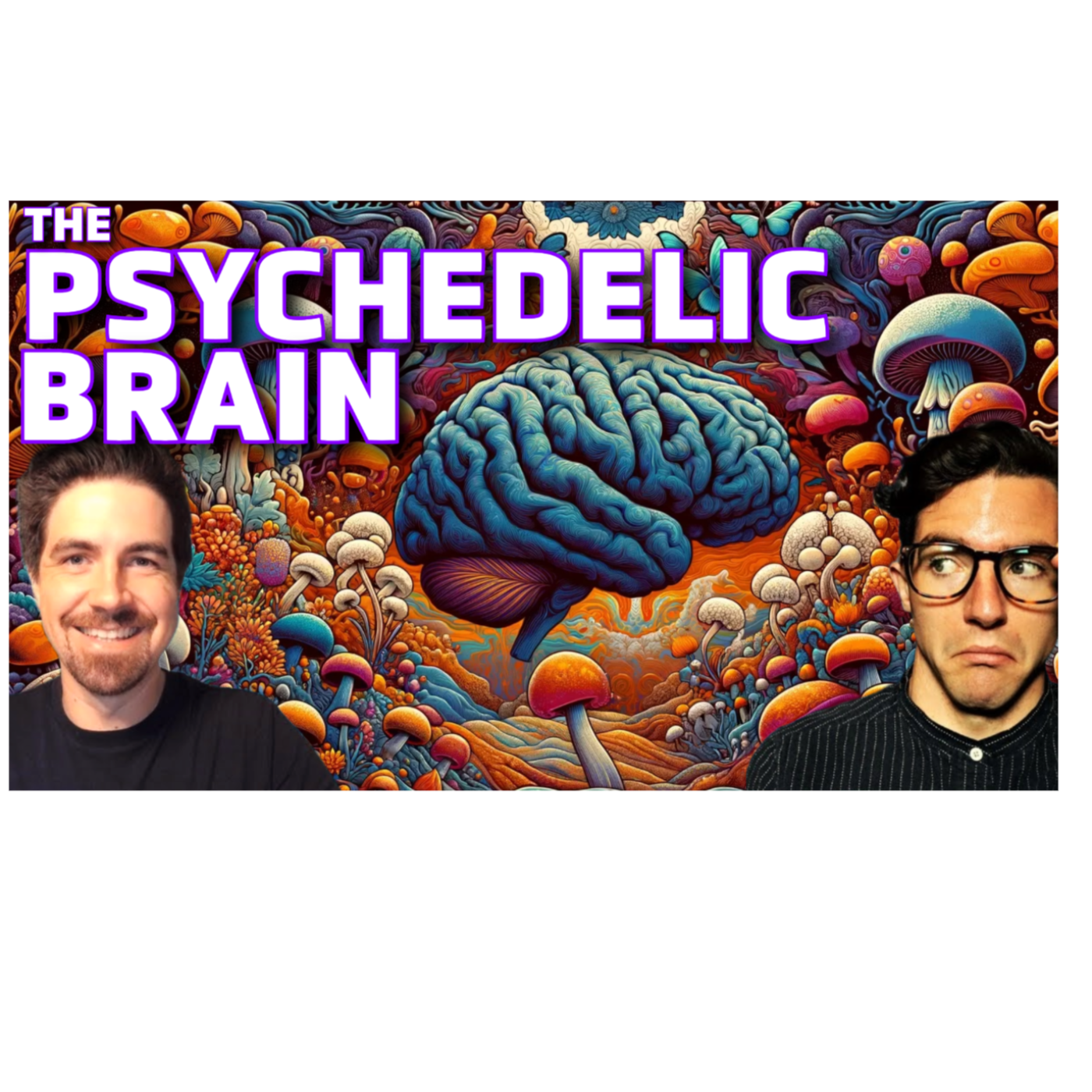 The Social BrainRevealing the Mind: The Neuroscience of PsychedelicsPsychedelics powerfully alter the brain by tapping into the serotonin system. In this episode, we’ll discuss how psychedelics affect the brain and what the existing literature suggests about their therapeutic potential.2024-03-181h 11
The Social BrainRevealing the Mind: The Neuroscience of PsychedelicsPsychedelics powerfully alter the brain by tapping into the serotonin system. In this episode, we’ll discuss how psychedelics affect the brain and what the existing literature suggests about their therapeutic potential.2024-03-181h 11 Sense of MindThe ADHD Brain - Beyond Distractions (The Social Brain ep 35)You've noticed it—the drift of your attention, the challenge of staying on task. We all experience this but for some of us this can reach extremes and fall under the category of ADHD, a complex neurological condition that's often misunderstood. But what really is ADHD?
In this episode, we're diving deep into the neuroscience of ADHD. We'll explore the latest research that sheds light on how ADHD brains work, the innovations in treatment and management, and most importantly, how those with ADHD can leverage their unique strengths.
⏬ ⏬ ⏬
Help us keep this show alive AN...2024-03-011h 33
Sense of MindThe ADHD Brain - Beyond Distractions (The Social Brain ep 35)You've noticed it—the drift of your attention, the challenge of staying on task. We all experience this but for some of us this can reach extremes and fall under the category of ADHD, a complex neurological condition that's often misunderstood. But what really is ADHD?
In this episode, we're diving deep into the neuroscience of ADHD. We'll explore the latest research that sheds light on how ADHD brains work, the innovations in treatment and management, and most importantly, how those with ADHD can leverage their unique strengths.
⏬ ⏬ ⏬
Help us keep this show alive AN...2024-03-011h 33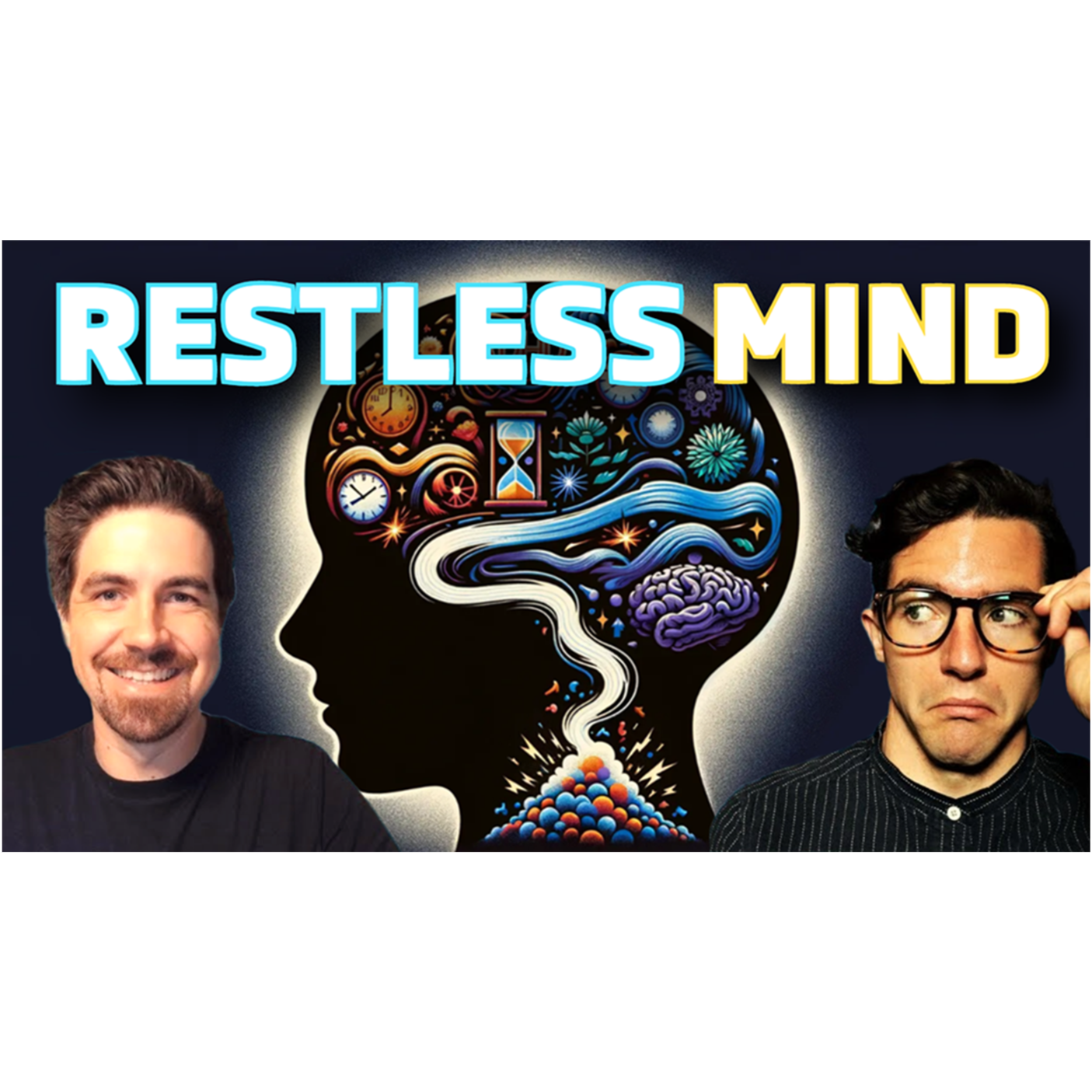 The Social BrainThe ADHD Brain: Beyond DistractionsYou've noticed it—the drift of your attention, the challenge of staying on task. We all experience this but for some of us this can reach extremes and fall under the category of ADHD, a complex neurological condition that's often misunderstood. We're not just talking about a child who can't sit still in class; this is about a diverse spectrum of experiences affecting people of all ages, in every aspect of life. But what really is ADHD? It's a term that's become common in our dialogue, yet it encompasses a vast range of symptoms: the impulsivity, the disorganization, the ex...2024-02-261h 33
The Social BrainThe ADHD Brain: Beyond DistractionsYou've noticed it—the drift of your attention, the challenge of staying on task. We all experience this but for some of us this can reach extremes and fall under the category of ADHD, a complex neurological condition that's often misunderstood. We're not just talking about a child who can't sit still in class; this is about a diverse spectrum of experiences affecting people of all ages, in every aspect of life. But what really is ADHD? It's a term that's become common in our dialogue, yet it encompasses a vast range of symptoms: the impulsivity, the disorganization, the ex...2024-02-261h 33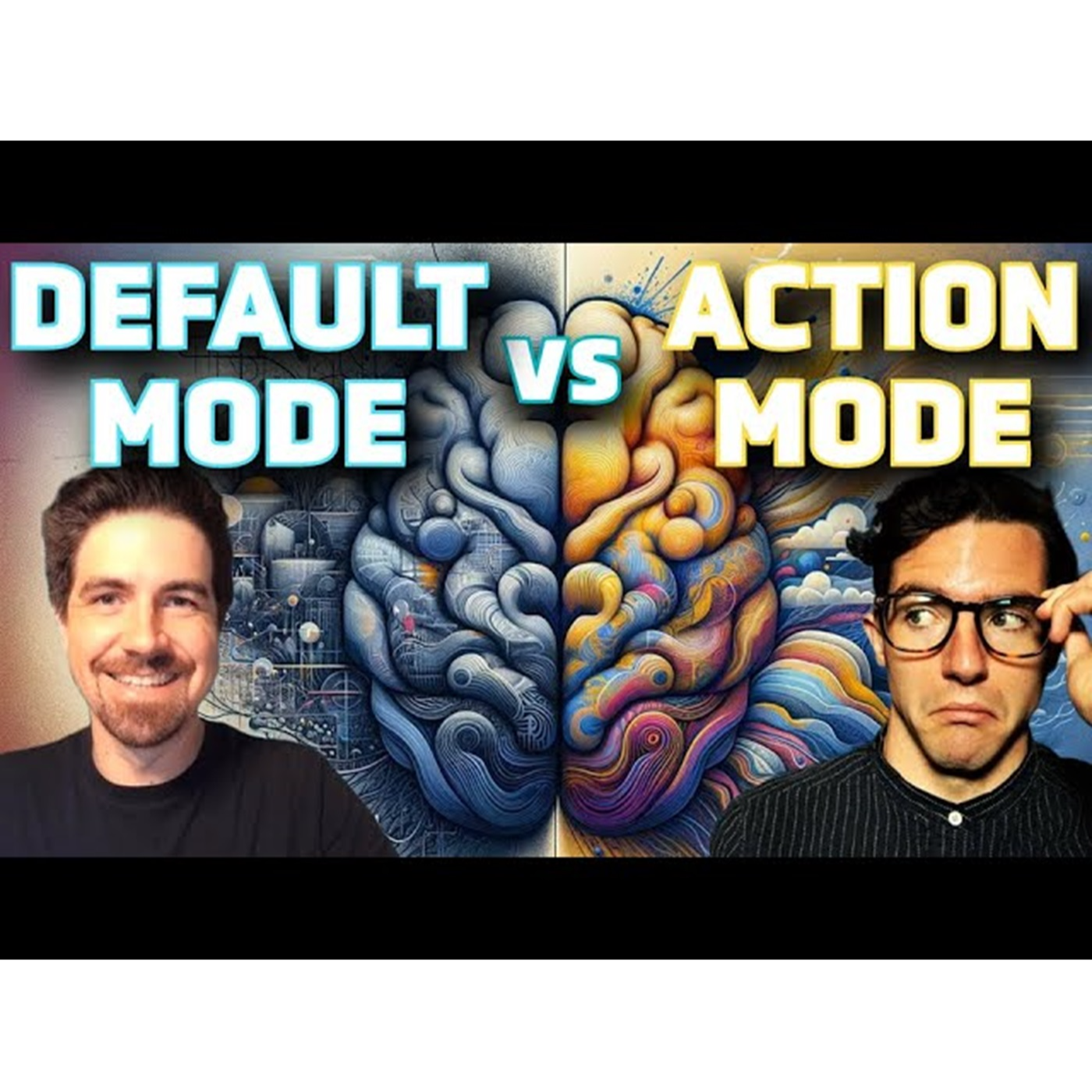 The Social BrainA Balanced Mind: The Default Mode & Other NetworksHave you ever noticed that when you aren’t doing anything specific, you often start thinking about yourself, your past, other people, or maybe your future? That’s your brain’s default mode network in action. And when your attention gets pulled back to the task you’re working on, a whole another set of networks comes online. In this episode, we’ll explain what these networks do, and why they’re so important for optimizing cognition.2024-02-151h 10
The Social BrainA Balanced Mind: The Default Mode & Other NetworksHave you ever noticed that when you aren’t doing anything specific, you often start thinking about yourself, your past, other people, or maybe your future? That’s your brain’s default mode network in action. And when your attention gets pulled back to the task you’re working on, a whole another set of networks comes online. In this episode, we’ll explain what these networks do, and why they’re so important for optimizing cognition.2024-02-151h 10 Sense of MindA Balanced Mind: The Default Mode & Other NetworksHave you ever noticed that when you aren’t doing anything specific, you often start thinking about yourself, your past, other people, or maybe your future? That’s your brain’s default mode network in action. And when your attention gets pulled back to the task you’re working on, a whole other set of networks comes online.
In this episode, we’ll explain what these networks do, and why they’re so important for optimizing cognition.
⏬ ⏬ ⏬
Help us keep this show alive AND get bonus content by going to: https://www.patreon.com/thesocialbrain...2024-02-121h 10
Sense of MindA Balanced Mind: The Default Mode & Other NetworksHave you ever noticed that when you aren’t doing anything specific, you often start thinking about yourself, your past, other people, or maybe your future? That’s your brain’s default mode network in action. And when your attention gets pulled back to the task you’re working on, a whole other set of networks comes online.
In this episode, we’ll explain what these networks do, and why they’re so important for optimizing cognition.
⏬ ⏬ ⏬
Help us keep this show alive AND get bonus content by going to: https://www.patreon.com/thesocialbrain...2024-02-121h 10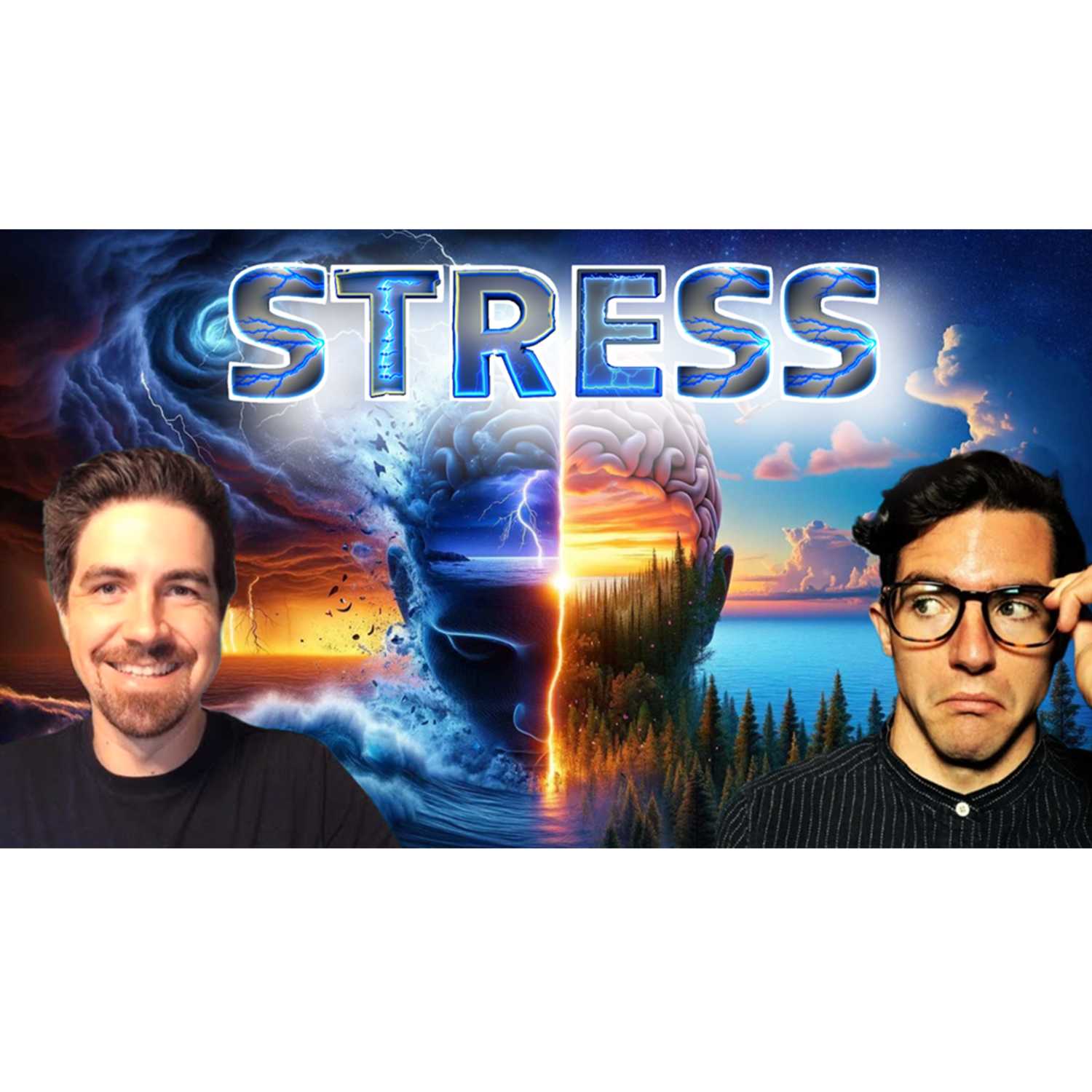 The Social BrainFrom Panic to Peace: The Brain's Stress ResponseYou've felt it—the rush of your heartbeat, the quickening of your breath. It's stress, an integral part of our modern lives. We're not fleeing from predators on the savannah, yet our bodies react as if we are, triggered by the challenges and pressures of today's world. But what really is stress? It's a term we toss around daily, but it manifests in countless ways: the tension in a strained relationship, the worry over unpaid bills, the panic of a looming deadline. This powerful response, once a survival mechanism, is now activated by our thoughts, our environment, ou...2024-01-291h 08
The Social BrainFrom Panic to Peace: The Brain's Stress ResponseYou've felt it—the rush of your heartbeat, the quickening of your breath. It's stress, an integral part of our modern lives. We're not fleeing from predators on the savannah, yet our bodies react as if we are, triggered by the challenges and pressures of today's world. But what really is stress? It's a term we toss around daily, but it manifests in countless ways: the tension in a strained relationship, the worry over unpaid bills, the panic of a looming deadline. This powerful response, once a survival mechanism, is now activated by our thoughts, our environment, ou...2024-01-291h 08 Sense of MindFrom Panic to Peace: The Brain's Stress Response (The Social Brain ep 33)Feel that heartbeat rush, that quickened breath? That's stress, a staple of modern life. Our bodies react to today's pressures as though facing ancient threats. Stress, often mentioned casually, shows up in many forms: relationship tensions, financial worries, or deadline panics.
Once key for survival, this response now springs from our thoughts and lifestyle, linking our physical and mental experiences. How does it impact our health and well-being?
In this episode, we dive into stress's science and mystery. We'll examine how this primal response adapts to modern life and how to manage its effects. It's...2024-01-291h 08
Sense of MindFrom Panic to Peace: The Brain's Stress Response (The Social Brain ep 33)Feel that heartbeat rush, that quickened breath? That's stress, a staple of modern life. Our bodies react to today's pressures as though facing ancient threats. Stress, often mentioned casually, shows up in many forms: relationship tensions, financial worries, or deadline panics.
Once key for survival, this response now springs from our thoughts and lifestyle, linking our physical and mental experiences. How does it impact our health and well-being?
In this episode, we dive into stress's science and mystery. We'll examine how this primal response adapts to modern life and how to manage its effects. It's...2024-01-291h 08 The Social BrainWorry and Peace: Easing The Brain’s AnxietyAt first glance, it seems silly to fear things that haven’t happened or may never happen. What is the point of getting worked up over something you may have no control over? Odd as it seems, the truth is, most of us do this on a regular basis. It’s a normal process that occurs in the brain and one you are probably deeply familiar with: anxiety.In this episode, we’ll see that while not all anxiety is bad, it very often causes us to suffer unnecessarily. We’ll see how this occurs in the brain an...2024-01-161h 11
The Social BrainWorry and Peace: Easing The Brain’s AnxietyAt first glance, it seems silly to fear things that haven’t happened or may never happen. What is the point of getting worked up over something you may have no control over? Odd as it seems, the truth is, most of us do this on a regular basis. It’s a normal process that occurs in the brain and one you are probably deeply familiar with: anxiety.In this episode, we’ll see that while not all anxiety is bad, it very often causes us to suffer unnecessarily. We’ll see how this occurs in the brain an...2024-01-161h 11 Sense of MindWorry and Peace: Easing The Brain’s Anxiety (The Social Brain ep 32)At first glance, it seems silly to fear things that haven’t happened or may never happen. What is the point of getting worked up over something you may have no control over? Odd as it seems, the truth is, most of us do this on a regular basis. It’s a normal process that occurs in the brain and one you are probably deeply familiar with: anxiety.
In this episode, we’ll see that while not all anxiety is bad, it very often causes us to suffer unnecessarily. We’ll see how this occurs i...2024-01-151h 11
Sense of MindWorry and Peace: Easing The Brain’s Anxiety (The Social Brain ep 32)At first glance, it seems silly to fear things that haven’t happened or may never happen. What is the point of getting worked up over something you may have no control over? Odd as it seems, the truth is, most of us do this on a regular basis. It’s a normal process that occurs in the brain and one you are probably deeply familiar with: anxiety.
In this episode, we’ll see that while not all anxiety is bad, it very often causes us to suffer unnecessarily. We’ll see how this occurs i...2024-01-151h 11 The Social BrainAre Your Choices Predetermined? Neuroscience and Free WillAre we the architects of our destiny, or merely puppets dancing on the strings of unseen forces? This tantalizing question lies at the heart of the free will debate, a realm where philosophy and science intertwine in a complex dance of possibilities and perspectives. Imagine a world where every decision you believe you make freely is actually the end product of a prewritten script, directed by the subconscious mechanisms of your brain. The notion that freewill might be an illusion, a narrative crafted by our neural circuits, shakes the very foundations of our belief in personal autonomy. Yet, this...2023-12-221h 12
The Social BrainAre Your Choices Predetermined? Neuroscience and Free WillAre we the architects of our destiny, or merely puppets dancing on the strings of unseen forces? This tantalizing question lies at the heart of the free will debate, a realm where philosophy and science intertwine in a complex dance of possibilities and perspectives. Imagine a world where every decision you believe you make freely is actually the end product of a prewritten script, directed by the subconscious mechanisms of your brain. The notion that freewill might be an illusion, a narrative crafted by our neural circuits, shakes the very foundations of our belief in personal autonomy. Yet, this...2023-12-221h 12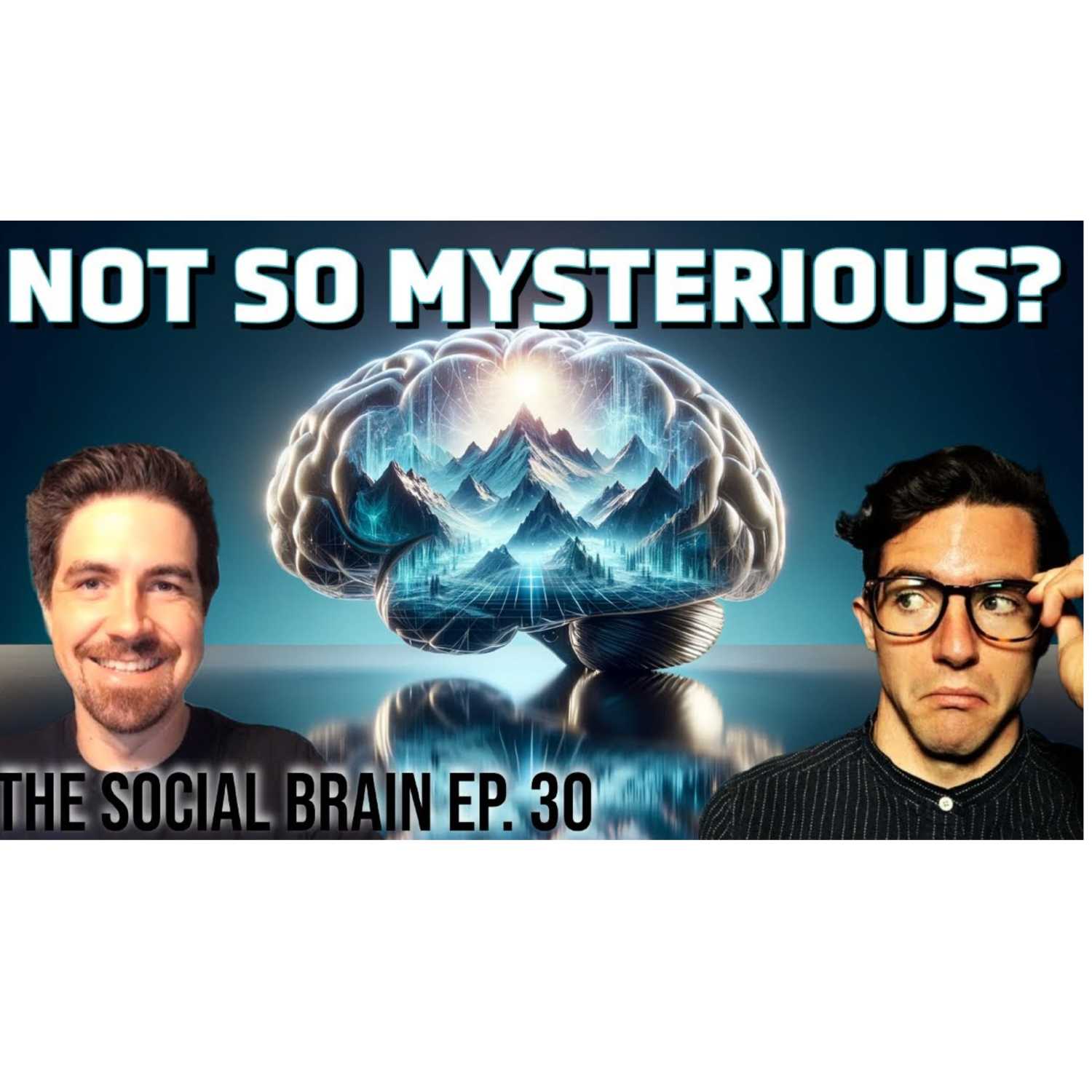 The Social BrainDecoding the Neuroscience of ConsciousnessConsciousness is probably the most perplexing mystery in all of science, and right now there is no consensus among neuroscientists about how the brain produces it. Yet, it appears that the solution may soon emerge, and it’s possible that it already has.2023-11-301h 04
The Social BrainDecoding the Neuroscience of ConsciousnessConsciousness is probably the most perplexing mystery in all of science, and right now there is no consensus among neuroscientists about how the brain produces it. Yet, it appears that the solution may soon emerge, and it’s possible that it already has.2023-11-301h 04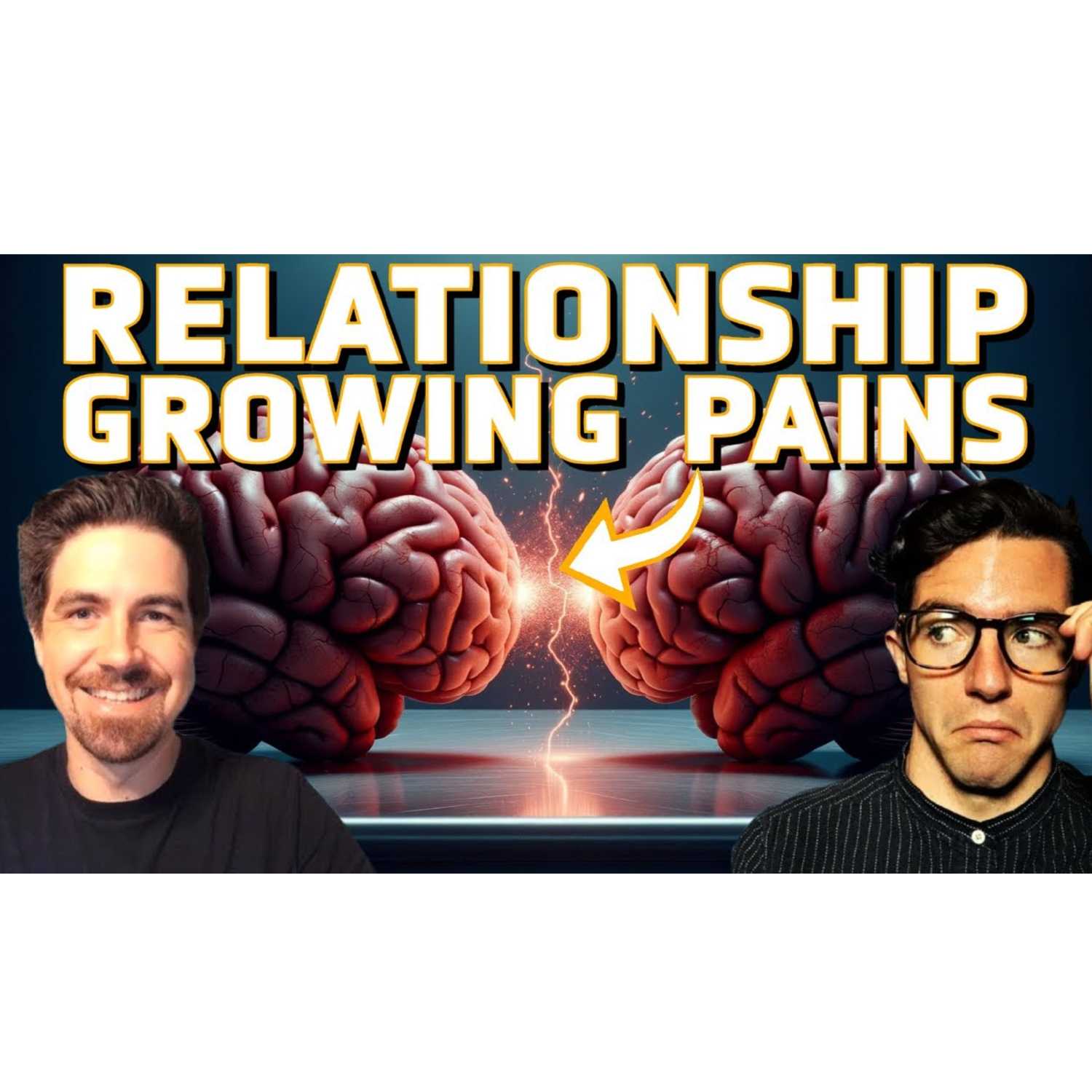 The Social BrainInterpersonal Conflict and the Brain: Process and StrategiesHave you ever noticed that conflict is an unavoidable part of our lives? It seems that regardless of where we are or what we do, conflict has a way of finding us. Our initial instincts may be to avoid it at all costs, to brush it under the rug and pretend like it doesn't exist. But conflict is not something to be feared or avoided. It is instead a powerful source of growth and development. Conflict is like a signal. It's a signal that something is not quite aligned, that there is a disconnect between our goals, our values, and...2023-10-271h 07
The Social BrainInterpersonal Conflict and the Brain: Process and StrategiesHave you ever noticed that conflict is an unavoidable part of our lives? It seems that regardless of where we are or what we do, conflict has a way of finding us. Our initial instincts may be to avoid it at all costs, to brush it under the rug and pretend like it doesn't exist. But conflict is not something to be feared or avoided. It is instead a powerful source of growth and development. Conflict is like a signal. It's a signal that something is not quite aligned, that there is a disconnect between our goals, our values, and...2023-10-271h 07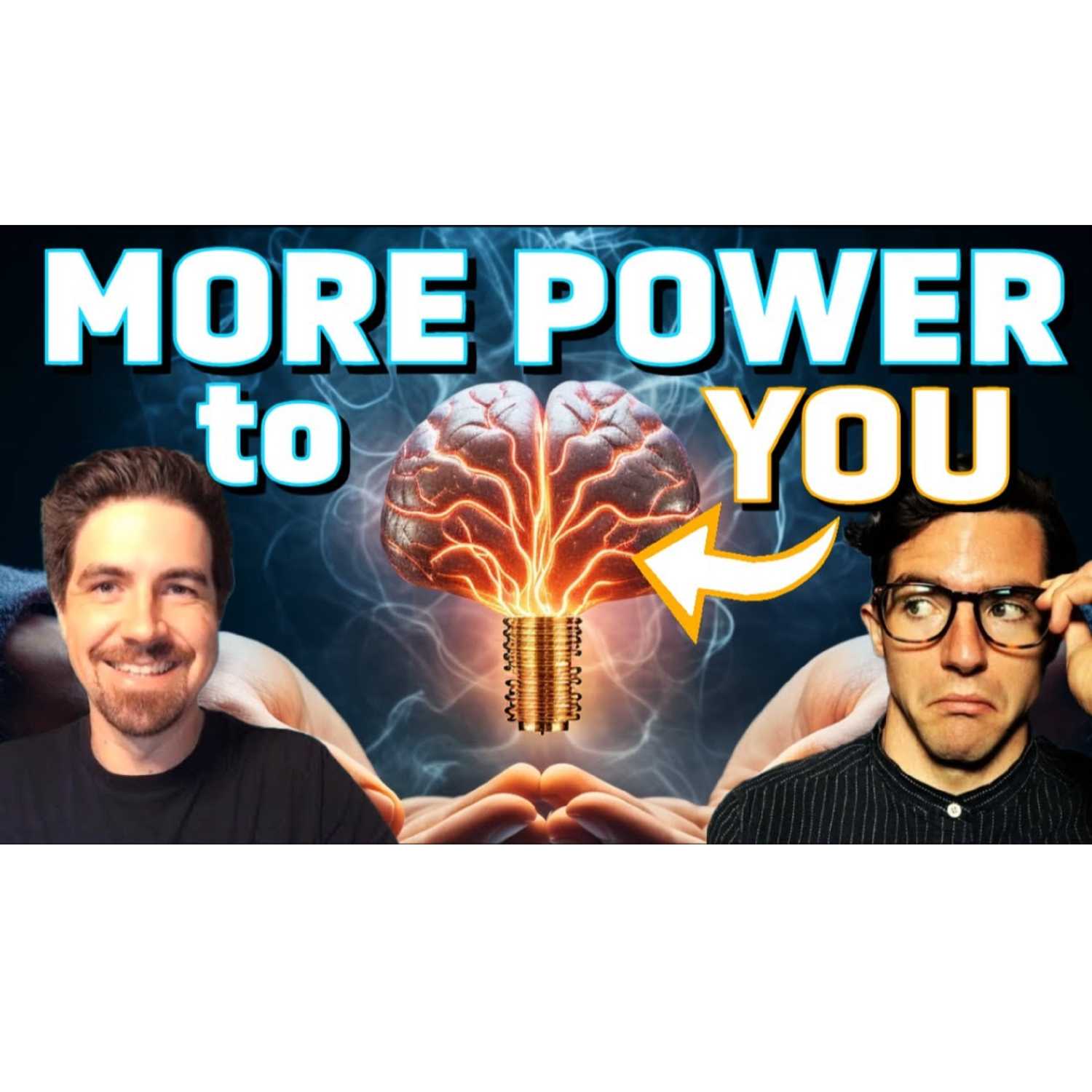 The Social BrainThe Power Struggle: Neuroscience of Status and HierarchiesHave you ever stopped to consider the power dynamics at play in your daily life? Think about it for a moment. From the moment we wake up, we find ourselves navigating through a web of power and status. It's there in our relationships, both personal and professional, guiding our interactions and shaping our behavior. It's even present in our own minds, influencing our thoughts and decisions without us even realizing it. It's a word that may evoke images of dominance, control, and oppression, but power is so much more than that. It's a force that intricately weaves its way into...2023-10-051h 13
The Social BrainThe Power Struggle: Neuroscience of Status and HierarchiesHave you ever stopped to consider the power dynamics at play in your daily life? Think about it for a moment. From the moment we wake up, we find ourselves navigating through a web of power and status. It's there in our relationships, both personal and professional, guiding our interactions and shaping our behavior. It's even present in our own minds, influencing our thoughts and decisions without us even realizing it. It's a word that may evoke images of dominance, control, and oppression, but power is so much more than that. It's a force that intricately weaves its way into...2023-10-051h 13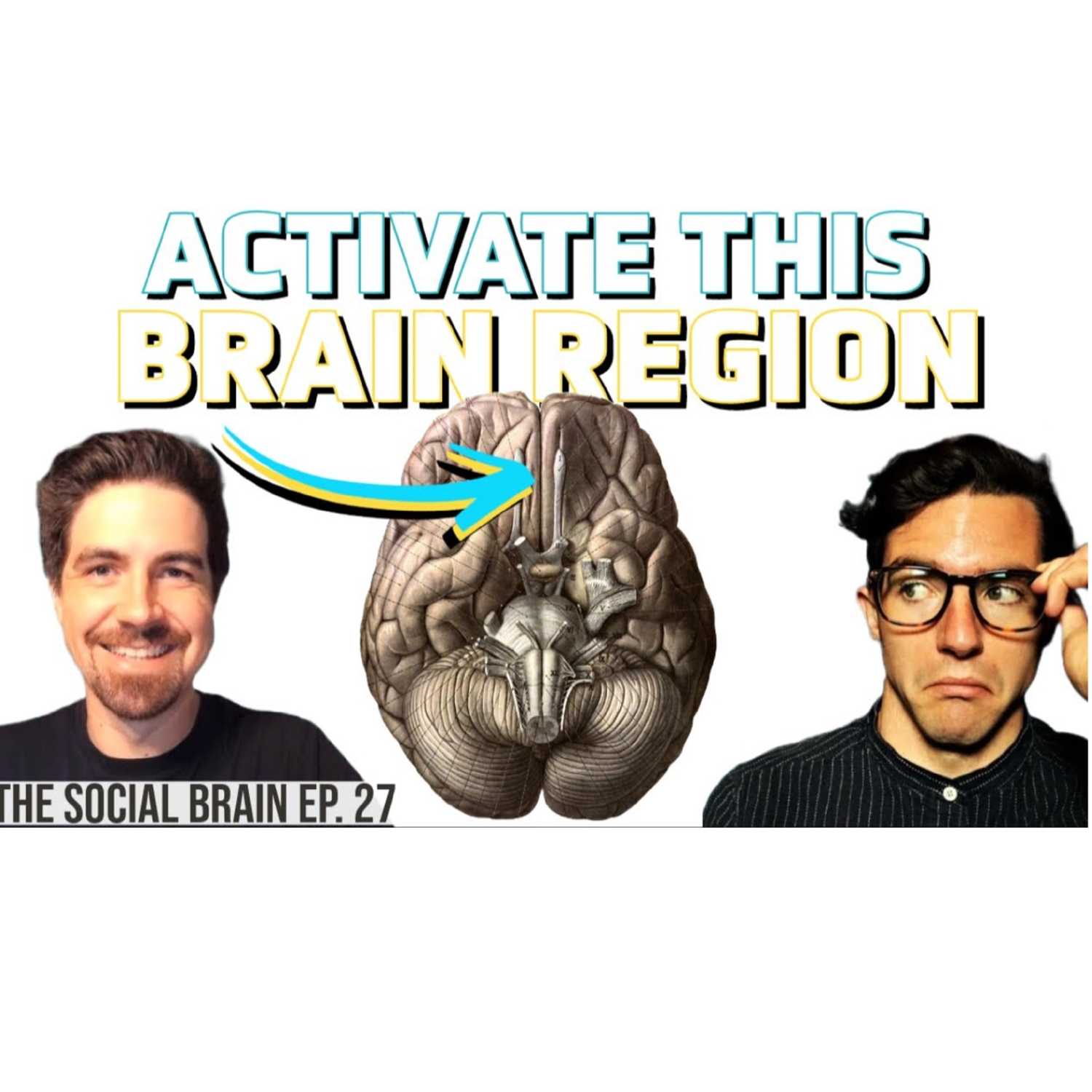 The Social BrainNeuroscience of Persuasion: Strategies for Changing Minds and BehaviorsThere are two options for getting anyone to do anything: You can violently force them oryou can peacefully persuade them. The first option is almost always unethical. So, if you’re an ethical person, your only option for changing people’s behavior is persuasion. Persuasion tends to get a bad wrap, as it’s commonly seen as a tool used only for psychological manipulation. Of course, people can use persuasion for unethical purposes, but the ability to use something for evil is true for all useful tools. Persuasion, or the ability to convince or change someone’s mind, is one of t...2023-09-211h 05
The Social BrainNeuroscience of Persuasion: Strategies for Changing Minds and BehaviorsThere are two options for getting anyone to do anything: You can violently force them oryou can peacefully persuade them. The first option is almost always unethical. So, if you’re an ethical person, your only option for changing people’s behavior is persuasion. Persuasion tends to get a bad wrap, as it’s commonly seen as a tool used only for psychological manipulation. Of course, people can use persuasion for unethical purposes, but the ability to use something for evil is true for all useful tools. Persuasion, or the ability to convince or change someone’s mind, is one of t...2023-09-211h 05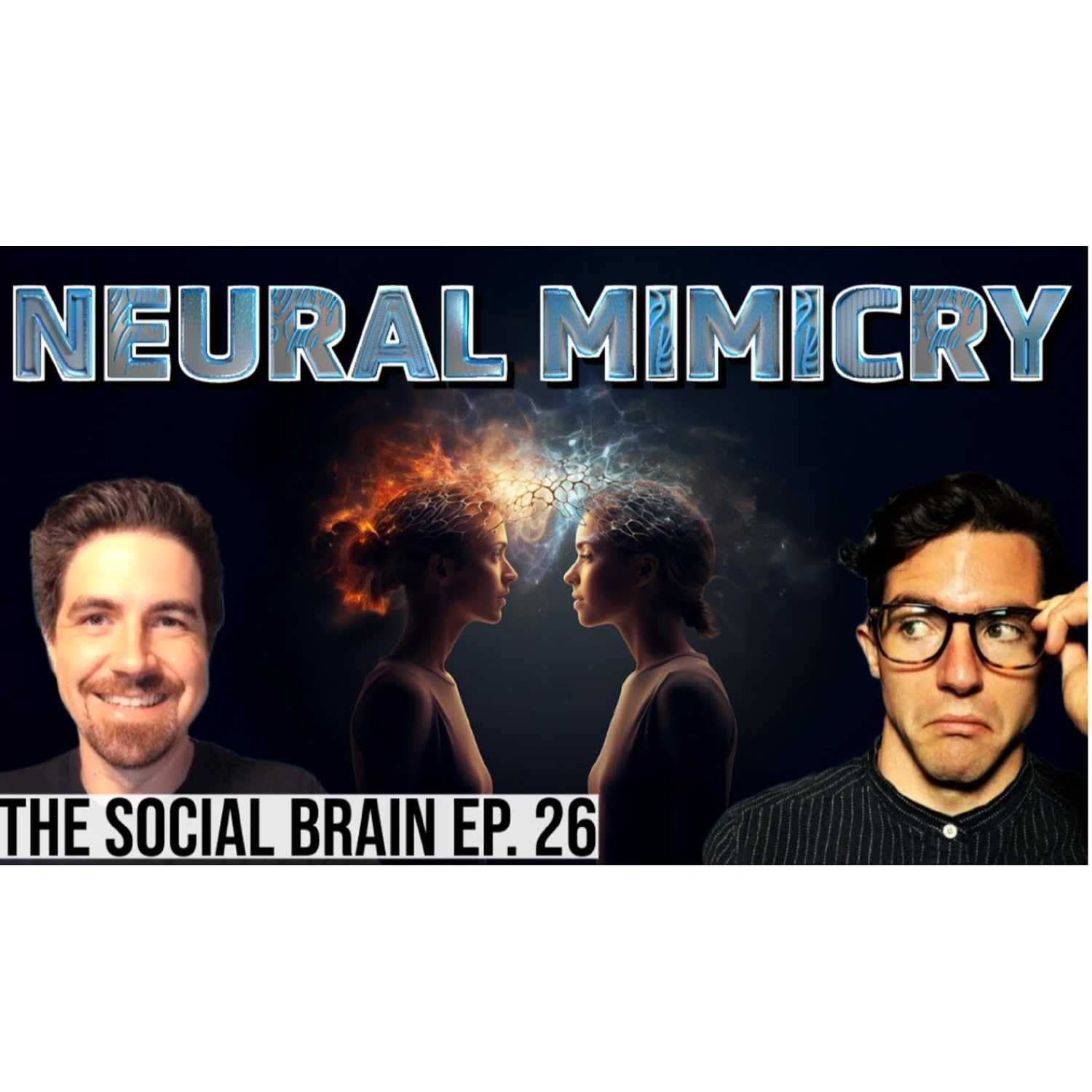 The Social BrainThe Neuroscience of Empathy: Mimicking the Minds of OthersIn a world where our lives are becoming increasingly fast-paced and technology-driven, the importance of empathy cannot be overstated. It is the glue that holds our communities together, the bridge that connects us to one another's experiences, and the foundation on which we build meaningful relationships. Empathy is the heartbeat of society, and without it, we risk losing our very essence.But here's the troubling truth – empathy, it seems, is on the decline. As we go about our days, isolated in our own bubbles despite being surrounded by people, we miss out on the opportunities for genuine connection. Instead, we fi...2023-09-071h 12
The Social BrainThe Neuroscience of Empathy: Mimicking the Minds of OthersIn a world where our lives are becoming increasingly fast-paced and technology-driven, the importance of empathy cannot be overstated. It is the glue that holds our communities together, the bridge that connects us to one another's experiences, and the foundation on which we build meaningful relationships. Empathy is the heartbeat of society, and without it, we risk losing our very essence.But here's the troubling truth – empathy, it seems, is on the decline. As we go about our days, isolated in our own bubbles despite being surrounded by people, we miss out on the opportunities for genuine connection. Instead, we fi...2023-09-071h 12 Sense of MindThe Neuroscience of Empathy: Mimicking the Minds of Others (The Social Brain ep 26)Empathy is powerful. It’s like neural mimicry, a way for our brains to synchronize and understand each other emotionally. This is what makes empathy such a powerful social force binding people together and allowing us to care for others.
But what is empathy? How does empathy work in the brain? What is the difference between cognitive empathy, affective empathy, sympathy, theory of mind and compassion? What happens when someone has no empathy at all? How can you enhance and increase your own empathy?
In this livestream episode of The Social Brain we'll answer all of...2023-09-071h 12
Sense of MindThe Neuroscience of Empathy: Mimicking the Minds of Others (The Social Brain ep 26)Empathy is powerful. It’s like neural mimicry, a way for our brains to synchronize and understand each other emotionally. This is what makes empathy such a powerful social force binding people together and allowing us to care for others.
But what is empathy? How does empathy work in the brain? What is the difference between cognitive empathy, affective empathy, sympathy, theory of mind and compassion? What happens when someone has no empathy at all? How can you enhance and increase your own empathy?
In this livestream episode of The Social Brain we'll answer all of...2023-09-071h 12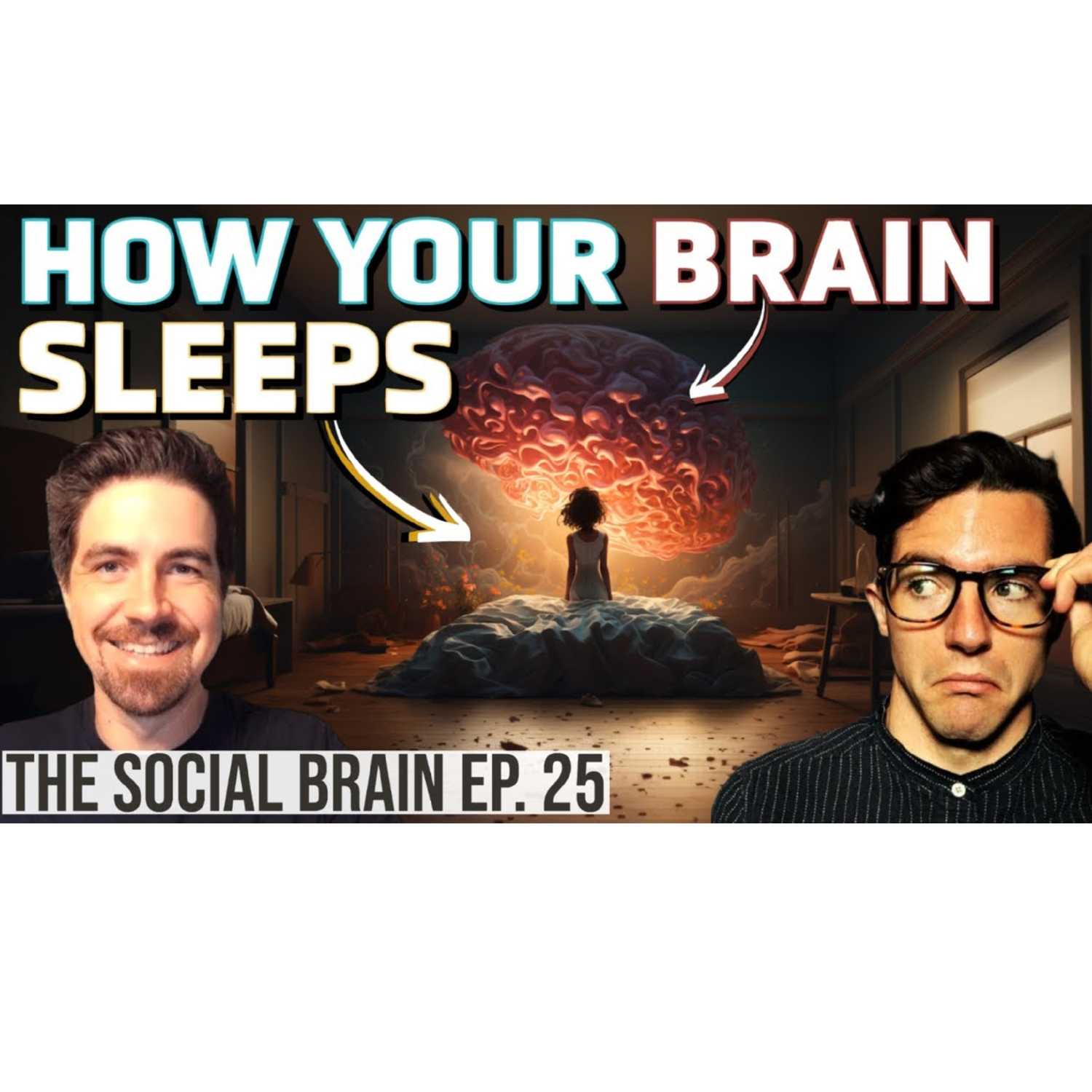 The Social BrainThe Brain Under Covers: The Science of SleepSleep presents a paradox. It seems both perfectly natural and utterly mysterious. We love sleep and often can’t get enough of it, yet most of us have no idea what it is. But the paradoxes don’t stop there. All living creatures evolved to survive and avoid danger. Yet, animals of all kinds seem to simply shut down for several hours at a time, leaving themselves vulnerable to predation. What could be so important about sleep that animals evolved such a vulnerability? Not only that, but while we’re asleep we inhabit impossible worlds. They’re logically inconsistent, yet also per...2023-08-171h 08
The Social BrainThe Brain Under Covers: The Science of SleepSleep presents a paradox. It seems both perfectly natural and utterly mysterious. We love sleep and often can’t get enough of it, yet most of us have no idea what it is. But the paradoxes don’t stop there. All living creatures evolved to survive and avoid danger. Yet, animals of all kinds seem to simply shut down for several hours at a time, leaving themselves vulnerable to predation. What could be so important about sleep that animals evolved such a vulnerability? Not only that, but while we’re asleep we inhabit impossible worlds. They’re logically inconsistent, yet also per...2023-08-171h 08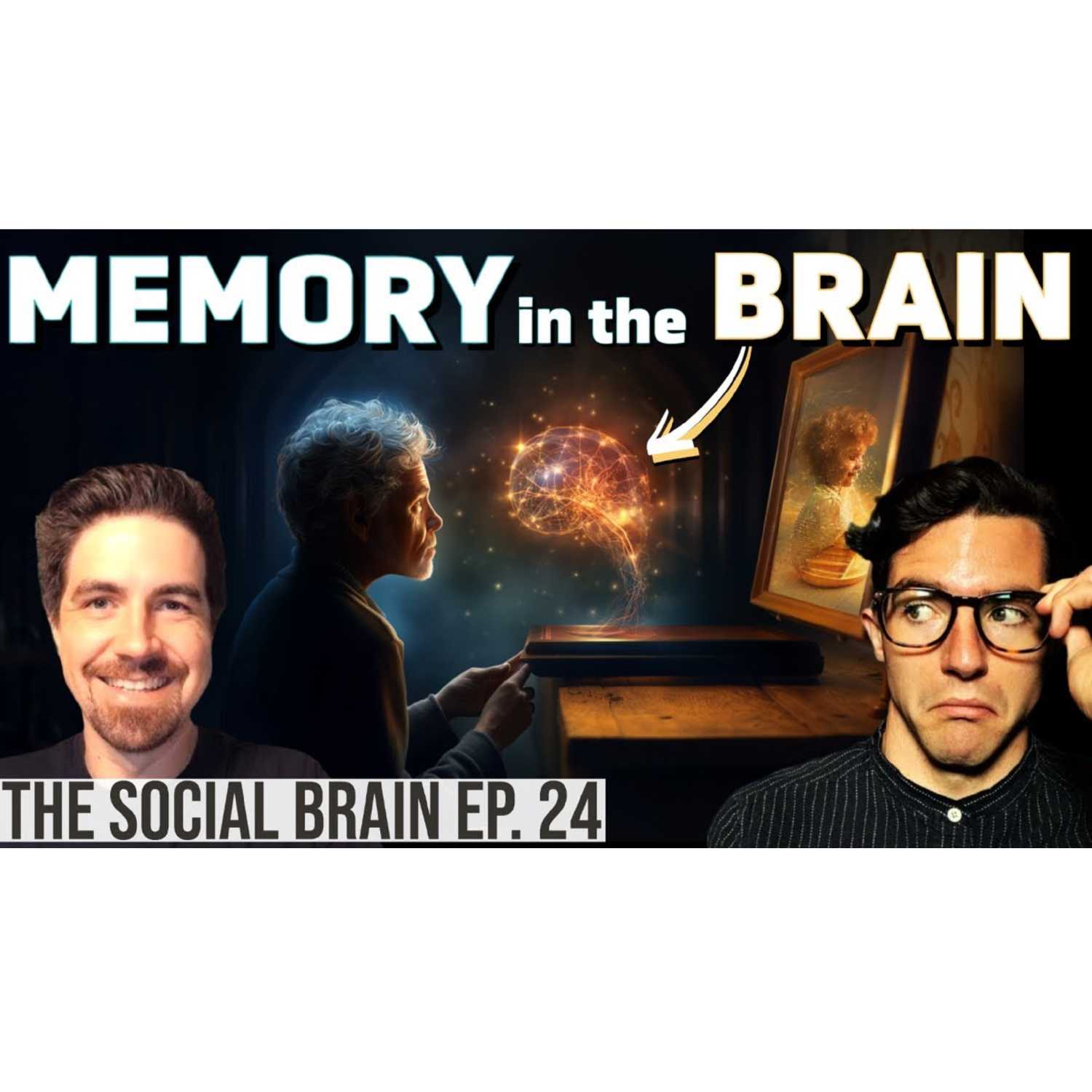 The Social BrainUsing the Past to Predict the Future: A New Neuroscience of MemoryMuch of the groundbreaking research in neuroscience has revolutionized our understanding of memory. Contrary to previous beliefs, memory is not stored in a specific location within the brain but rather in the intricate circuits that processed the original experience. In essence, memory is not just a system but a memory of systems. This discovery highlights how memory is an integral part of information processing, allowing for both generalization and specificity, and enabling us to make predictions about the future. Our brains are not solely devoted to comprehending the world around us; instead, they actively seek to navigate through it. Our...2023-08-101h 02
The Social BrainUsing the Past to Predict the Future: A New Neuroscience of MemoryMuch of the groundbreaking research in neuroscience has revolutionized our understanding of memory. Contrary to previous beliefs, memory is not stored in a specific location within the brain but rather in the intricate circuits that processed the original experience. In essence, memory is not just a system but a memory of systems. This discovery highlights how memory is an integral part of information processing, allowing for both generalization and specificity, and enabling us to make predictions about the future. Our brains are not solely devoted to comprehending the world around us; instead, they actively seek to navigate through it. Our...2023-08-101h 02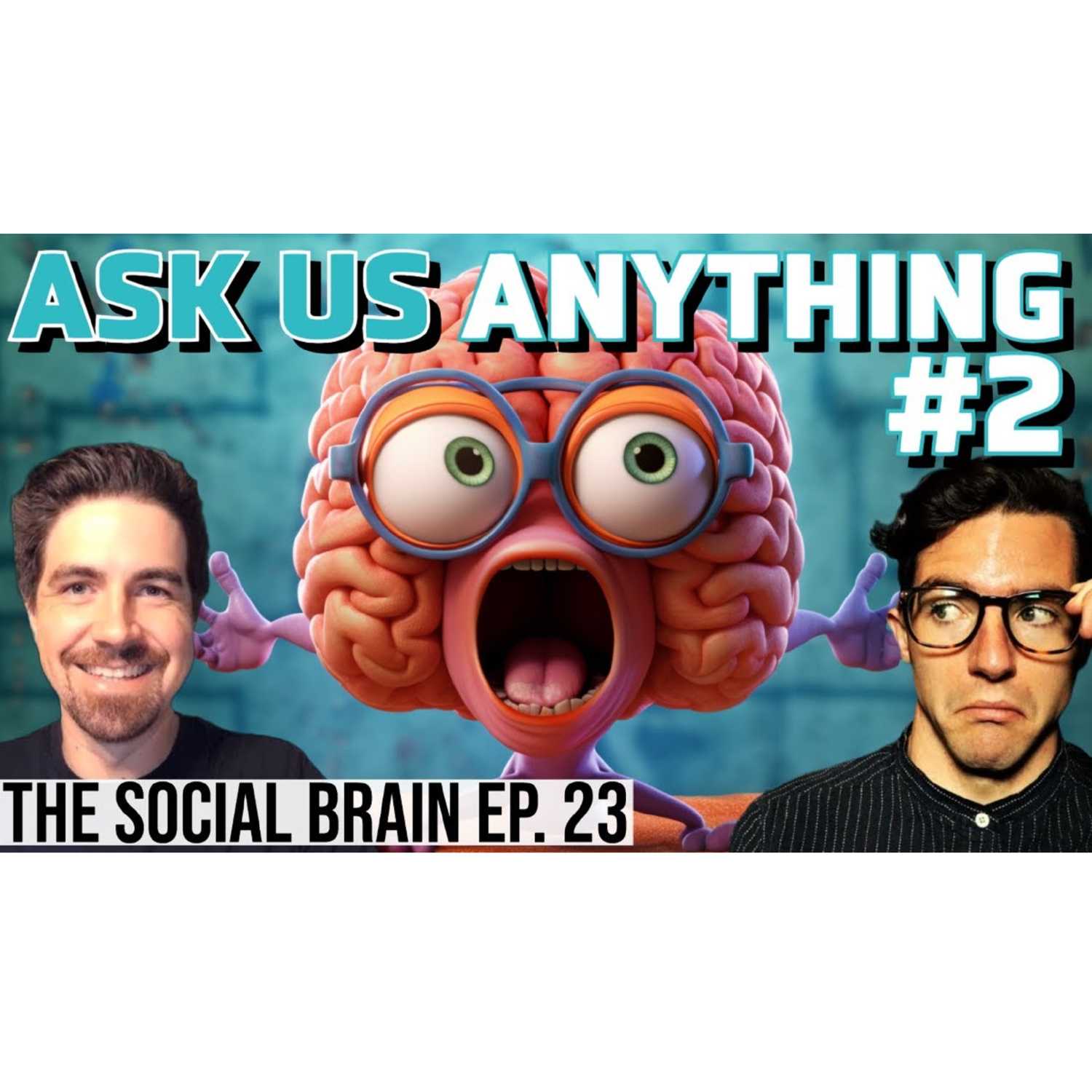 The Social BrainAMA #2: Lizard brain, seeking and pleasure circuits, meditation and intrusive thoughtsWe're back with another Ask Us Anything! On this episode of The Social Brain, we will be addressing questions about all things #neuroscience sent to us by viewers like you.I want to know the difference between the limbic brain and the reptilian brain. Are they the same or [do they] operate differently?Can you discuss the interplay between the desire circuitry and pleasure circuits, is there an overlap? Could you discuss the nuclei? What circuits act in opposition to these circuits?About to go on a 10-day vipassana meditation silent retreat. Was wondering what the likely effects are of...2023-07-261h 07
The Social BrainAMA #2: Lizard brain, seeking and pleasure circuits, meditation and intrusive thoughtsWe're back with another Ask Us Anything! On this episode of The Social Brain, we will be addressing questions about all things #neuroscience sent to us by viewers like you.I want to know the difference between the limbic brain and the reptilian brain. Are they the same or [do they] operate differently?Can you discuss the interplay between the desire circuitry and pleasure circuits, is there an overlap? Could you discuss the nuclei? What circuits act in opposition to these circuits?About to go on a 10-day vipassana meditation silent retreat. Was wondering what the likely effects are of...2023-07-261h 07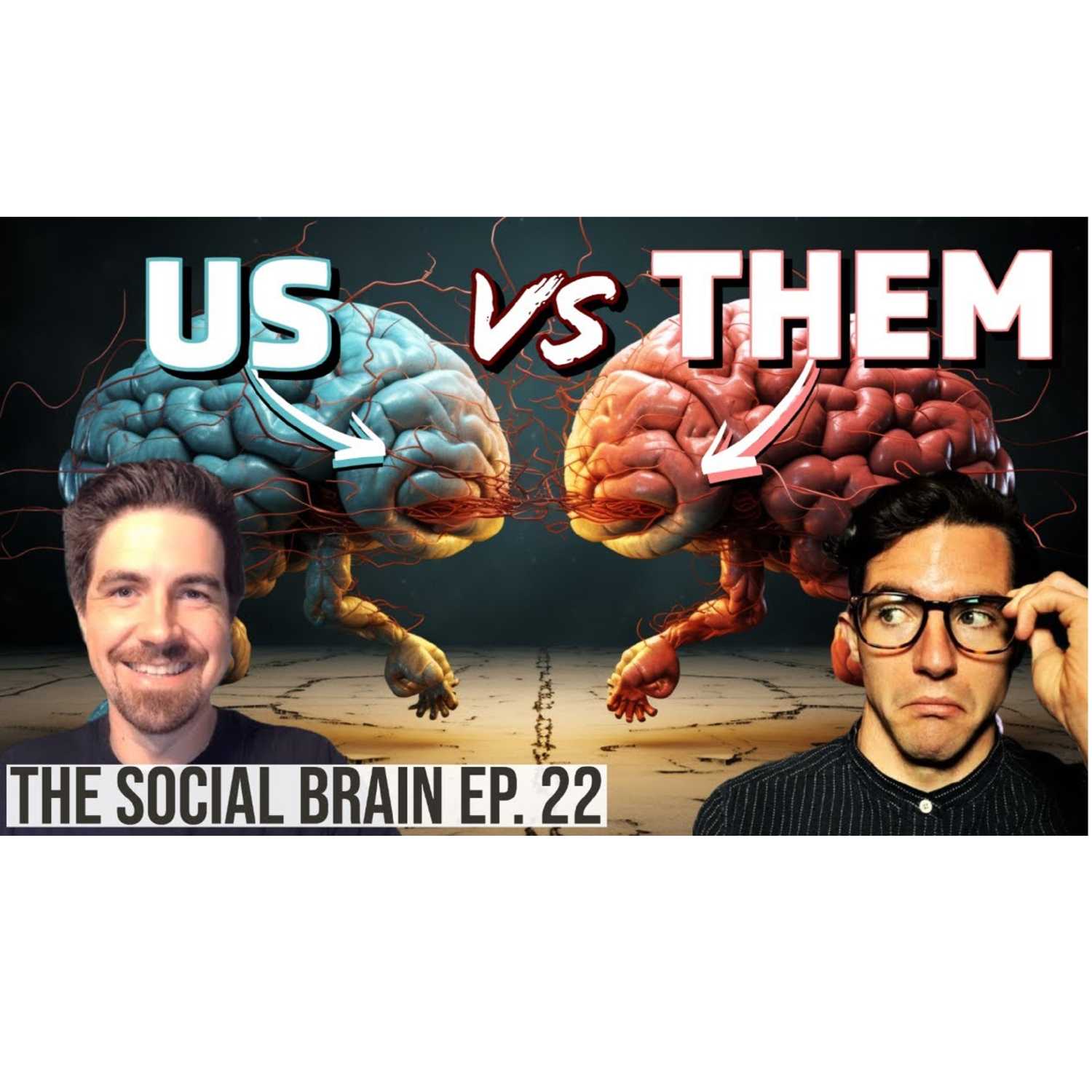 The Social BrainUs vs Them: The Tribal BrainAs humans, we are constantly interacting with others, both in person and online. In order to make snap decisions about how to interact with these people, our brains have evolved to create mental shortcuts that allow us to quickly categorize them. Our brain is wired to predict, and we put these prediction circuits to work every time we engage in one of these interactions. What are their intentions? Are they a threat? Can they help me? Are they a potential mate? This can be incredibly adaptive and helpful in some circumstances, but it can also lead to bias and misattribution...2023-07-111h 01
The Social BrainUs vs Them: The Tribal BrainAs humans, we are constantly interacting with others, both in person and online. In order to make snap decisions about how to interact with these people, our brains have evolved to create mental shortcuts that allow us to quickly categorize them. Our brain is wired to predict, and we put these prediction circuits to work every time we engage in one of these interactions. What are their intentions? Are they a threat? Can they help me? Are they a potential mate? This can be incredibly adaptive and helpful in some circumstances, but it can also lead to bias and misattribution...2023-07-111h 01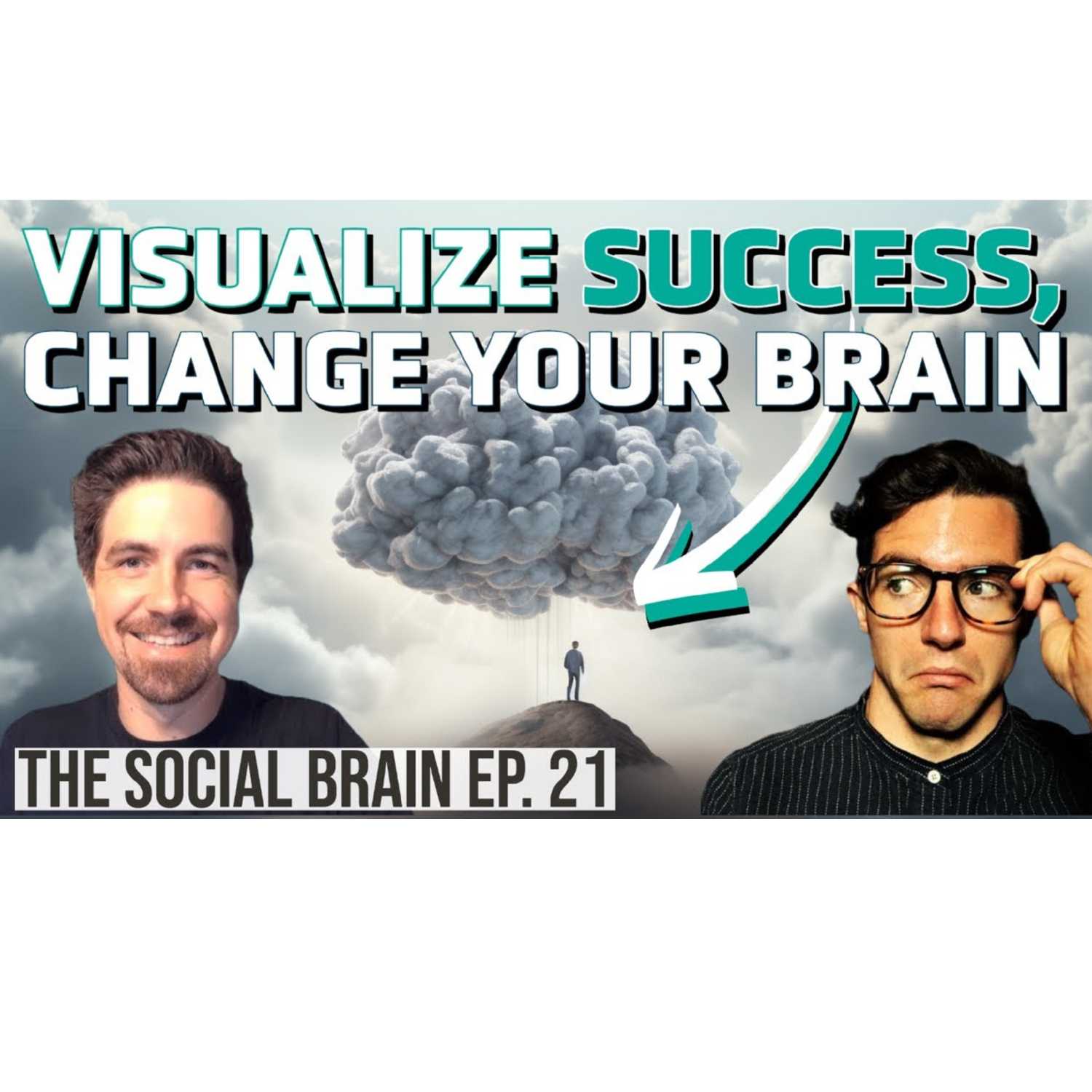 The Social BrainVisualization & The Brain: Using Neuroscience to Boost PerformanceWe spend a lot of time inside our own heads–thinking, reminiscing, ruminating, predicting, and imagining. All of this is occurring as a result of brain activity, and we can learn to direct our inner experience to help reshape our brains, hone our abilities, and become the best versions of ourselves. There are limitations to the power of mental practice and visualization, which we will talk about. But the truth is that most people aren’t using this ability to its full potential, either because they don’t believe in it or they use it sub-optimally. Consider the fact that all of...2023-06-271h 03
The Social BrainVisualization & The Brain: Using Neuroscience to Boost PerformanceWe spend a lot of time inside our own heads–thinking, reminiscing, ruminating, predicting, and imagining. All of this is occurring as a result of brain activity, and we can learn to direct our inner experience to help reshape our brains, hone our abilities, and become the best versions of ourselves. There are limitations to the power of mental practice and visualization, which we will talk about. But the truth is that most people aren’t using this ability to its full potential, either because they don’t believe in it or they use it sub-optimally. Consider the fact that all of...2023-06-271h 03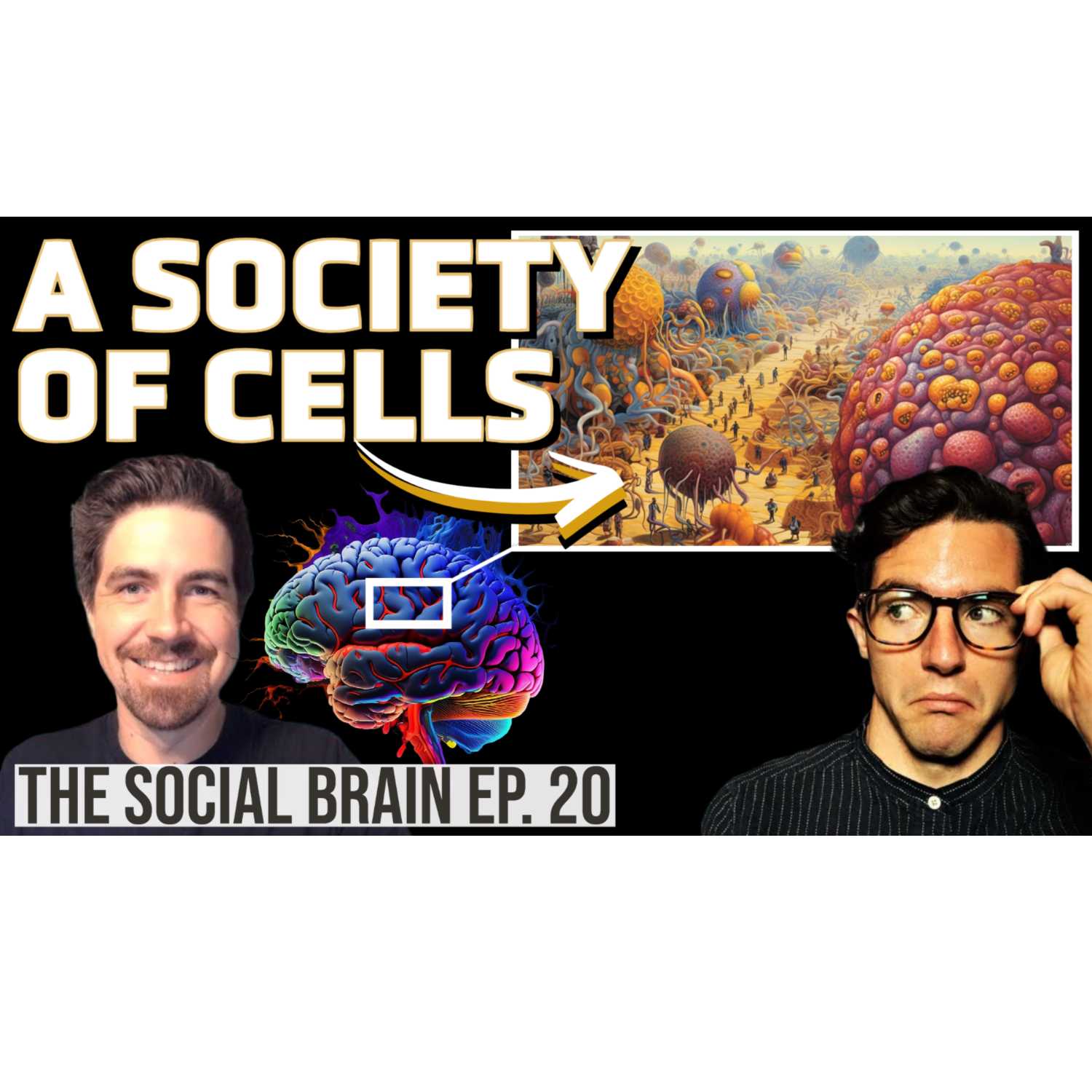 The Social BrainConnecting the Mind and Body: Collective Cellular IntelligenceAs modern humans, we often get stuck ruminating on abstract cognitive thoughts and thereby neglect our relationship with our bodies. In doing so, we forget that the brain evolved to take care of its body. The only reason that neurons and “you” exist is because all of the other cells that pump your blood and move you through the world needed help coordinating their actions. None of this is done in English, but instead through heat, pressure, sensation and perception. We need a new way of thinking about the ways in which our body speaks, and we listen. In this epis...2023-06-161h 04
The Social BrainConnecting the Mind and Body: Collective Cellular IntelligenceAs modern humans, we often get stuck ruminating on abstract cognitive thoughts and thereby neglect our relationship with our bodies. In doing so, we forget that the brain evolved to take care of its body. The only reason that neurons and “you” exist is because all of the other cells that pump your blood and move you through the world needed help coordinating their actions. None of this is done in English, but instead through heat, pressure, sensation and perception. We need a new way of thinking about the ways in which our body speaks, and we listen. In this epis...2023-06-161h 04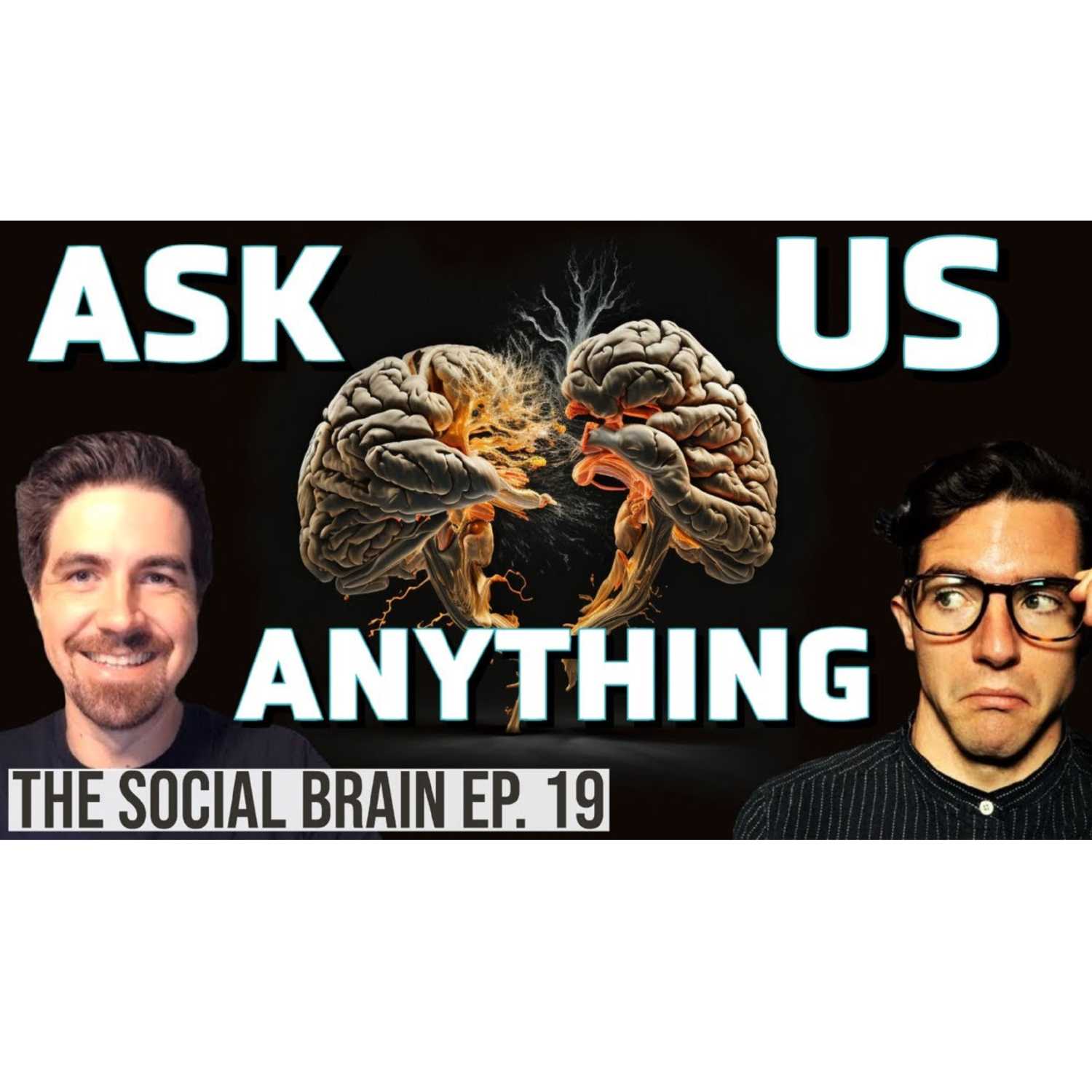 The Social BrainAMA #1: Triune Brain, Glial Cells, Serotonin and Dopamine and much more! You asked, we're here to answer! On this episode of The Social Brain, we will be addressing questions about all things neuroscience sent to us by viewers like you. Be sure to join in and leave any questions you have for future AMA episodes in the comments or the live chat!2023-06-121h 04
The Social BrainAMA #1: Triune Brain, Glial Cells, Serotonin and Dopamine and much more! You asked, we're here to answer! On this episode of The Social Brain, we will be addressing questions about all things neuroscience sent to us by viewers like you. Be sure to join in and leave any questions you have for future AMA episodes in the comments or the live chat!2023-06-121h 04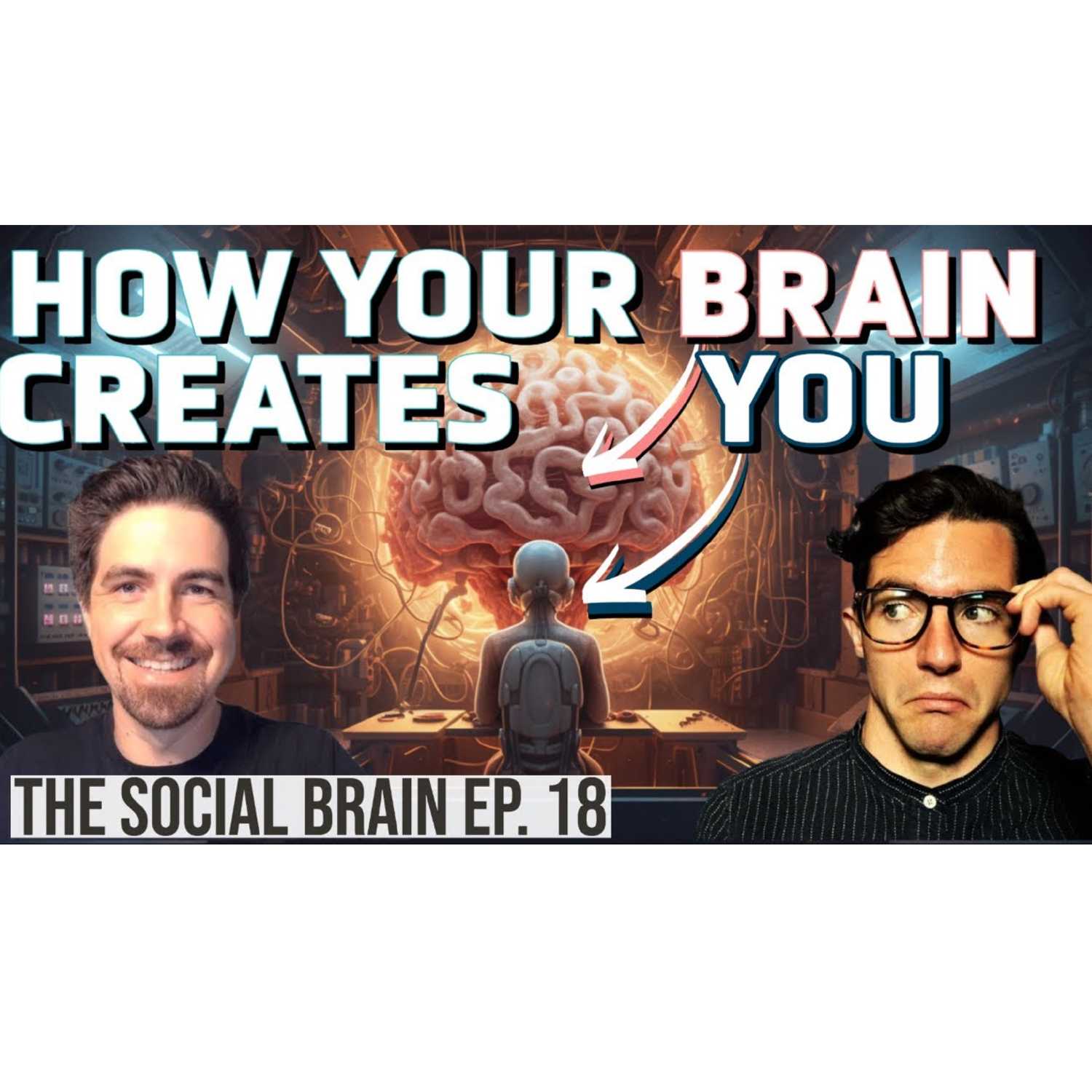 The Social BrainCrafting Who We Are: Examining the Neuroscience of SelfWe have all sought to become the best versions of ourselves, understanding who we are and what we want to become. But how do humans have such a strong sense of self? Philosophers have deliberated on this topic for centuries, yet recent advances in cognitive science and neuroimaging have enabled us to glimpse into the brain's role in creating this representation. We understand how the brain develops through adolescenceand starts to specialize as we move into adulthood, placing a strong emphasis on self-relevant information. With this knowledge, we can use identity to bring about meaningful changes to our lives and...2023-05-301h 01
The Social BrainCrafting Who We Are: Examining the Neuroscience of SelfWe have all sought to become the best versions of ourselves, understanding who we are and what we want to become. But how do humans have such a strong sense of self? Philosophers have deliberated on this topic for centuries, yet recent advances in cognitive science and neuroimaging have enabled us to glimpse into the brain's role in creating this representation. We understand how the brain develops through adolescenceand starts to specialize as we move into adulthood, placing a strong emphasis on self-relevant information. With this knowledge, we can use identity to bring about meaningful changes to our lives and...2023-05-301h 01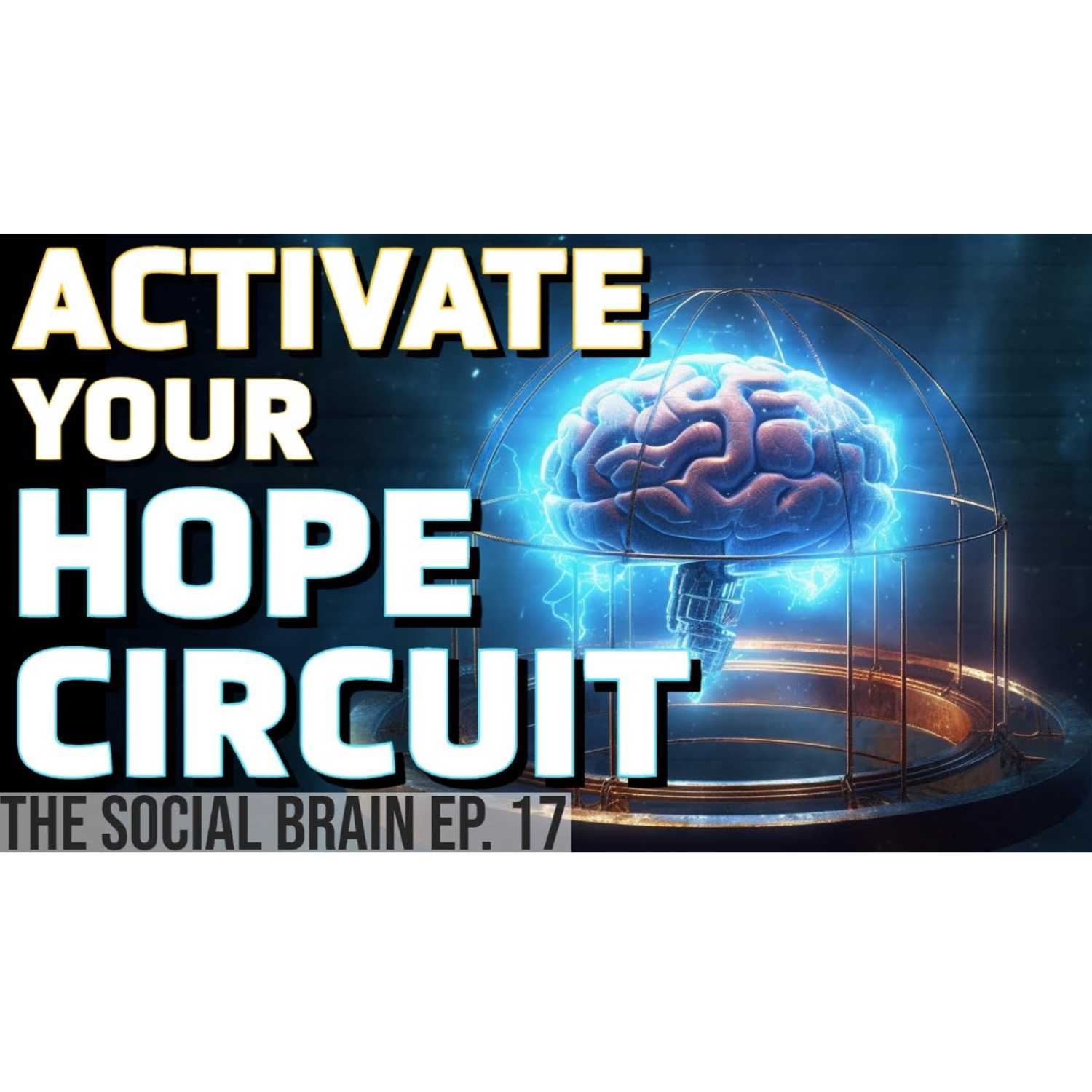 The Social BrainActivating Your Brain’s Hope Circuit: From Helplessness to EmpowermentOne of the most empowering things you can do for yourself is to become more hopeful. To many people, this can sound trite. It can sound a lot like the idea that you should just have faith that things will work out, regardless of the reality of your situation. That makes sense because many people use the word “hope” as a synonym for “wish”. We say things like “I hope it all works out for you!” or “I hope that candidate doesn’t win the election.” In other words, we use “hope” to express our preferences for the future, without any reference to our r...2023-05-161h 01
The Social BrainActivating Your Brain’s Hope Circuit: From Helplessness to EmpowermentOne of the most empowering things you can do for yourself is to become more hopeful. To many people, this can sound trite. It can sound a lot like the idea that you should just have faith that things will work out, regardless of the reality of your situation. That makes sense because many people use the word “hope” as a synonym for “wish”. We say things like “I hope it all works out for you!” or “I hope that candidate doesn’t win the election.” In other words, we use “hope” to express our preferences for the future, without any reference to our r...2023-05-161h 01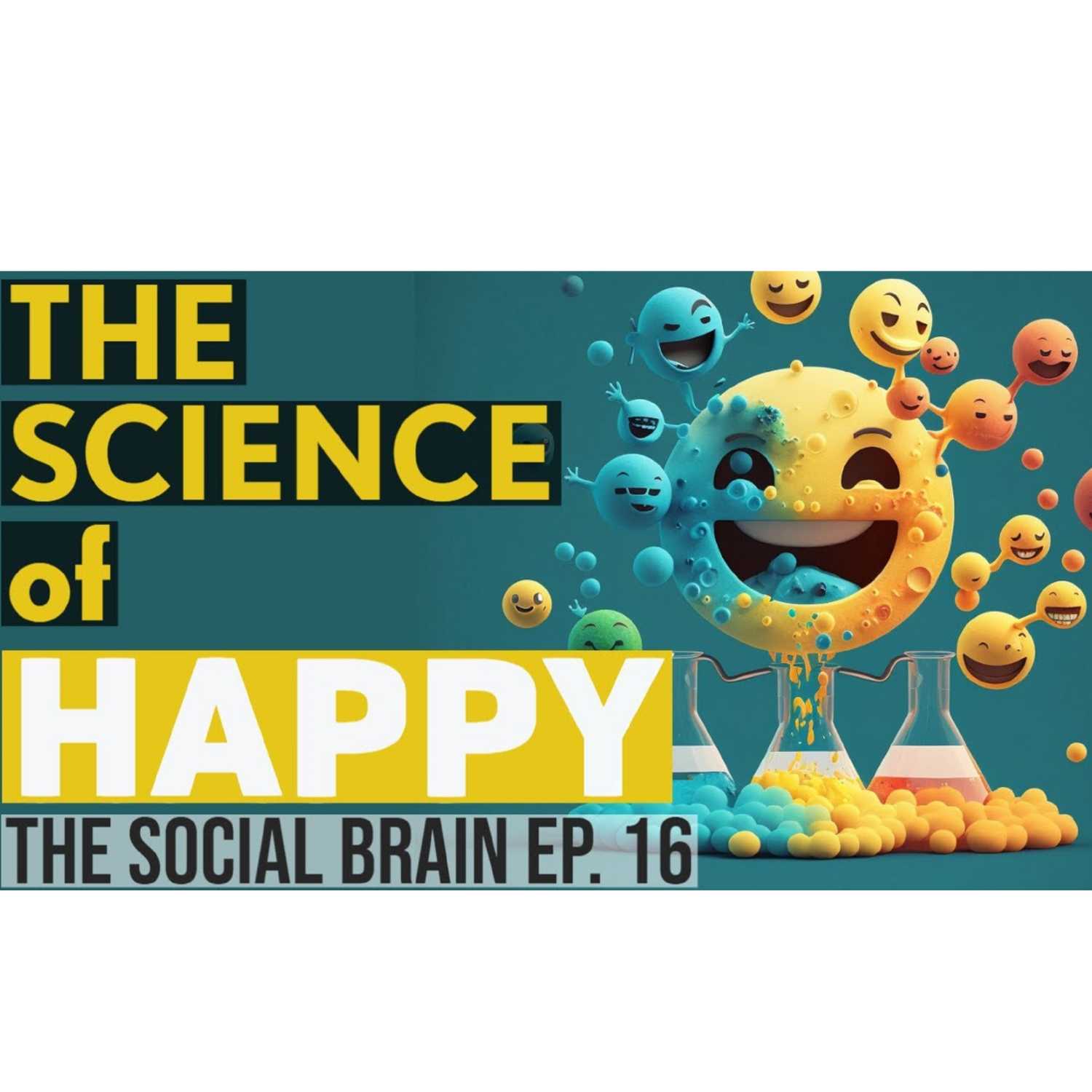 The Social BrainEvidence-Based Happiness: Uncovering the Science of Positive Psychology for a Better LifeProbably the most important question we can ask is “how can I be happier?” Some people might find this question overly self-centered, but becoming happier is not only good for us, but everyone we come into contact with as well. Others, while agreeing that individual happiness is important, may nevertheless think it is impossible to be any happier than one’s genes or childhood determine. That is a myth. In fact, over the last fifty years, an entire field of psychological science (and more recently, neuroscience) has been created in order to understand and maximize individual human flourishing—positive psychology. In this...2023-05-0359 min
The Social BrainEvidence-Based Happiness: Uncovering the Science of Positive Psychology for a Better LifeProbably the most important question we can ask is “how can I be happier?” Some people might find this question overly self-centered, but becoming happier is not only good for us, but everyone we come into contact with as well. Others, while agreeing that individual happiness is important, may nevertheless think it is impossible to be any happier than one’s genes or childhood determine. That is a myth. In fact, over the last fifty years, an entire field of psychological science (and more recently, neuroscience) has been created in order to understand and maximize individual human flourishing—positive psychology. In this...2023-05-0359 min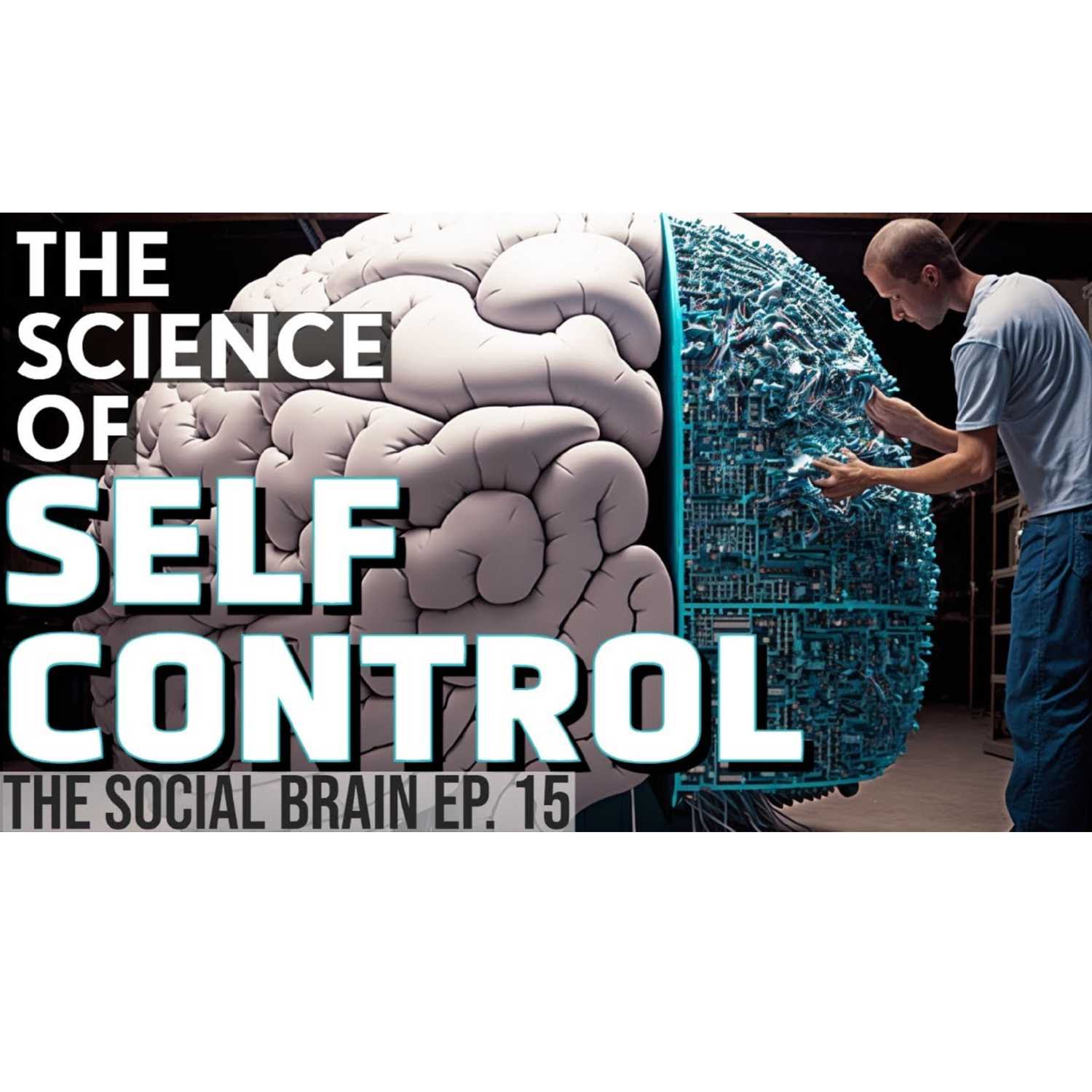 The Social BrainMotivate Your Mind: Self-Control and Your BrainWe all want to be able to do more, achieve more, and become more successful. But how do we do that? It turns out that the answer lies in the psychology and neuroscience behind willpower and self-control. Many of us probably believe that our will power is limited and that when we’re tired or depleted that we are incapable of staying motivated. The science is showing though that this is far from the truth and is highlighting that this belief that you hold may be the main reason why you feel this way. If we can change our beliefs ab...2023-04-181h 01
The Social BrainMotivate Your Mind: Self-Control and Your BrainWe all want to be able to do more, achieve more, and become more successful. But how do we do that? It turns out that the answer lies in the psychology and neuroscience behind willpower and self-control. Many of us probably believe that our will power is limited and that when we’re tired or depleted that we are incapable of staying motivated. The science is showing though that this is far from the truth and is highlighting that this belief that you hold may be the main reason why you feel this way. If we can change our beliefs ab...2023-04-181h 01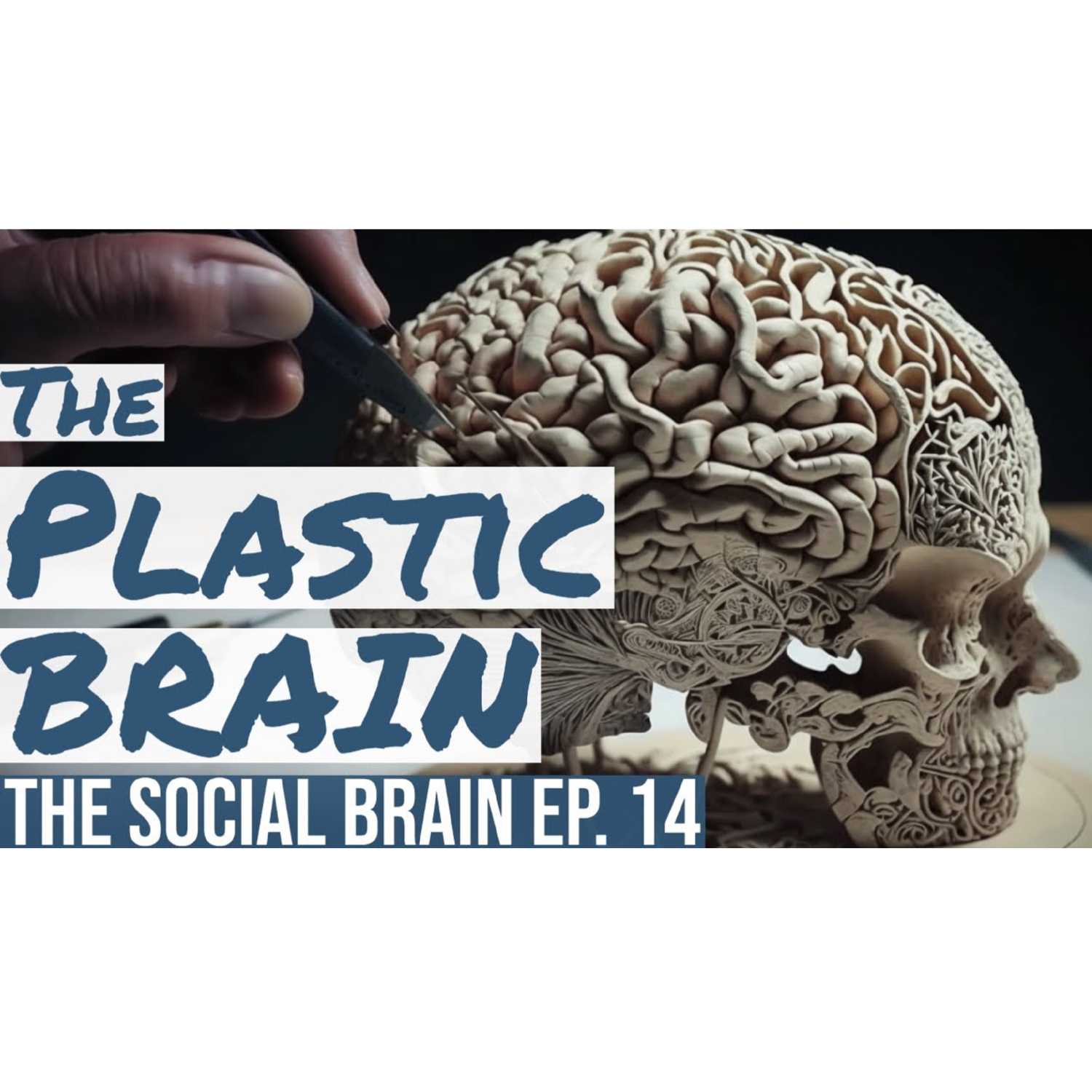 The Social BrainRewire Your Brain: How Neuroplasticity Can Transform Your LifeIn this episode, we will explain how neuroplasticity works and how you can use it to improve your life. Throughout life, you are continually changing, shifting, adapting, learning, and becoming who you are. Another way of saying that is that your mind is continually changing, because you are your mind. Of course, your brain is the physical substrate of your mind–the brain is what makes you you. So every change you have ever experienced is a result of your brain changing. Your memories, your sense of who you are, your ability to do even the simplest tasks–all of it i...2023-04-0459 min
The Social BrainRewire Your Brain: How Neuroplasticity Can Transform Your LifeIn this episode, we will explain how neuroplasticity works and how you can use it to improve your life. Throughout life, you are continually changing, shifting, adapting, learning, and becoming who you are. Another way of saying that is that your mind is continually changing, because you are your mind. Of course, your brain is the physical substrate of your mind–the brain is what makes you you. So every change you have ever experienced is a result of your brain changing. Your memories, your sense of who you are, your ability to do even the simplest tasks–all of it i...2023-04-0459 min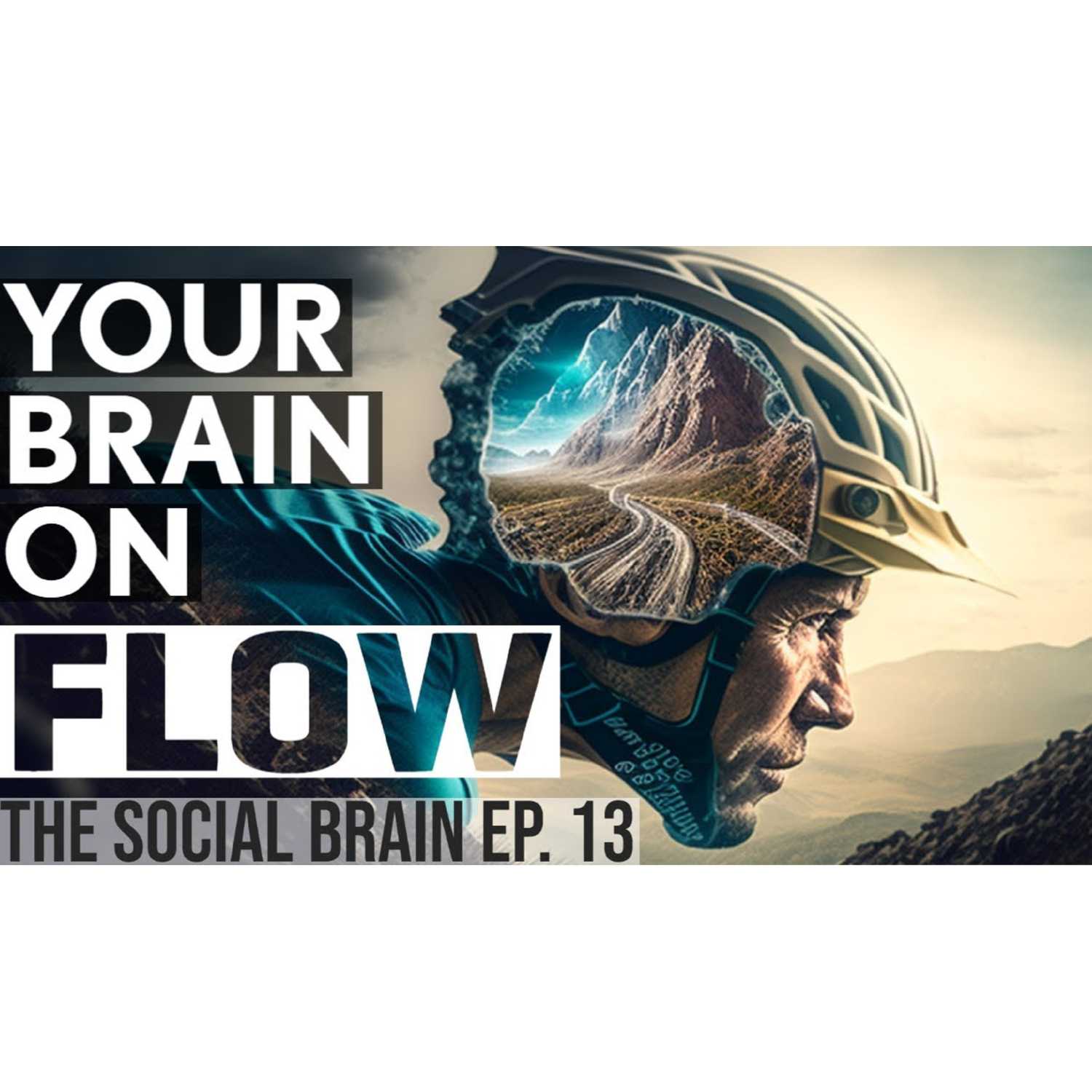 The Social BrainUnlocking the Power of Flow: The Neuroscience of Peak ExperienceWe’ve all experienced it at one point or another: that feeling of effortless, almost magical engagement with a task, where time seems to stand still and the world around us fades away. It’s the state of flow, and it’s been described as the ultimate form of happiness and productivity. Flow is a state that can be experienced in many different activities, from sports to art to work. It’s a feeling of being completely immersed in the task at hand, feeling a sense of ease and effortlessness in your actions. It’s a powerful state of being, and...2023-03-211h 01
The Social BrainUnlocking the Power of Flow: The Neuroscience of Peak ExperienceWe’ve all experienced it at one point or another: that feeling of effortless, almost magical engagement with a task, where time seems to stand still and the world around us fades away. It’s the state of flow, and it’s been described as the ultimate form of happiness and productivity. Flow is a state that can be experienced in many different activities, from sports to art to work. It’s a feeling of being completely immersed in the task at hand, feeling a sense of ease and effortlessness in your actions. It’s a powerful state of being, and...2023-03-211h 01 Sense of MindHuman Uniqueness: How Our Brains Set Us Apart in the Animal KingdomWhat truly sets humans apart from other animals? In this episode, we'll explore the human brain and the unique characteristics that define our species. From our extraordinary language abilities and unmatched cognitive control to our intricate social networks and emotional experiences, we'll uncover the neurological basis for these traits and discuss their profound implications on human culture and civilization.
Join us on this intellectual adventure as we examine the anatomy of the human brain, comparing it to the brains of other primates and shedding light on the evolution of our exceptional mental capacities. We'll cover fascinating topics...2023-03-1710 min
Sense of MindHuman Uniqueness: How Our Brains Set Us Apart in the Animal KingdomWhat truly sets humans apart from other animals? In this episode, we'll explore the human brain and the unique characteristics that define our species. From our extraordinary language abilities and unmatched cognitive control to our intricate social networks and emotional experiences, we'll uncover the neurological basis for these traits and discuss their profound implications on human culture and civilization.
Join us on this intellectual adventure as we examine the anatomy of the human brain, comparing it to the brains of other primates and shedding light on the evolution of our exceptional mental capacities. We'll cover fascinating topics...2023-03-1710 min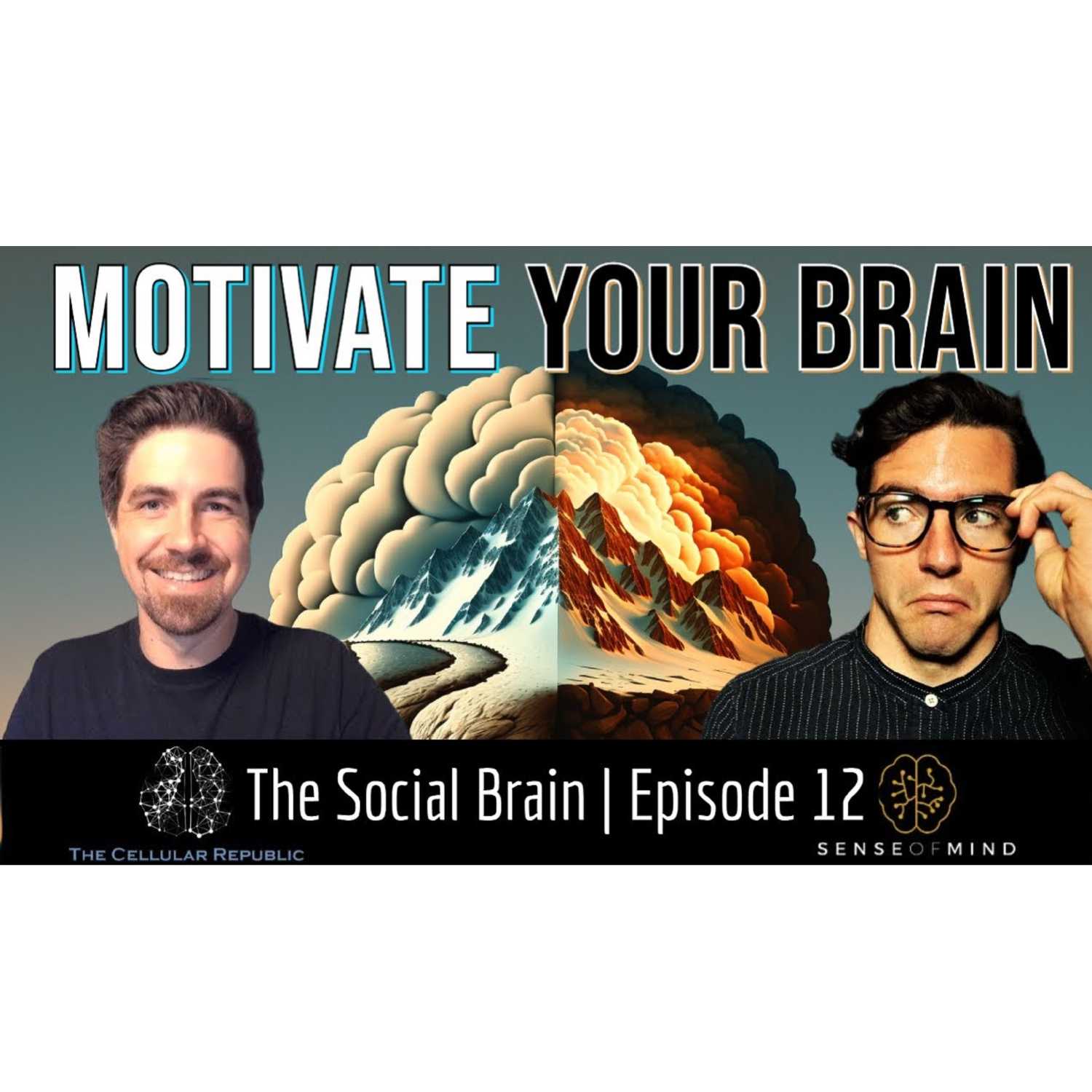 The Social BrainFrom Burnout to Bliss: Dopamine, Motivation, and GoalsDo you feel exhausted by work or life in general? More specifically, do you lack a feeling of motivation and drive that you used to have? If so, you might be experiencing burnout. Burnout is incredibly common, with a 2018 Gallup poll reporting that 23% of employees in the US say they feel burned out at work all or most of the time (and I would guess this is higher post-Covid). While motivation naturally ebbs and flows, when you have an ongoing lack of motivation combined with exhaustion, depression, and other negative emotions, it might mean that you are burned out...2023-03-011h 01
The Social BrainFrom Burnout to Bliss: Dopamine, Motivation, and GoalsDo you feel exhausted by work or life in general? More specifically, do you lack a feeling of motivation and drive that you used to have? If so, you might be experiencing burnout. Burnout is incredibly common, with a 2018 Gallup poll reporting that 23% of employees in the US say they feel burned out at work all or most of the time (and I would guess this is higher post-Covid). While motivation naturally ebbs and flows, when you have an ongoing lack of motivation combined with exhaustion, depression, and other negative emotions, it might mean that you are burned out...2023-03-011h 01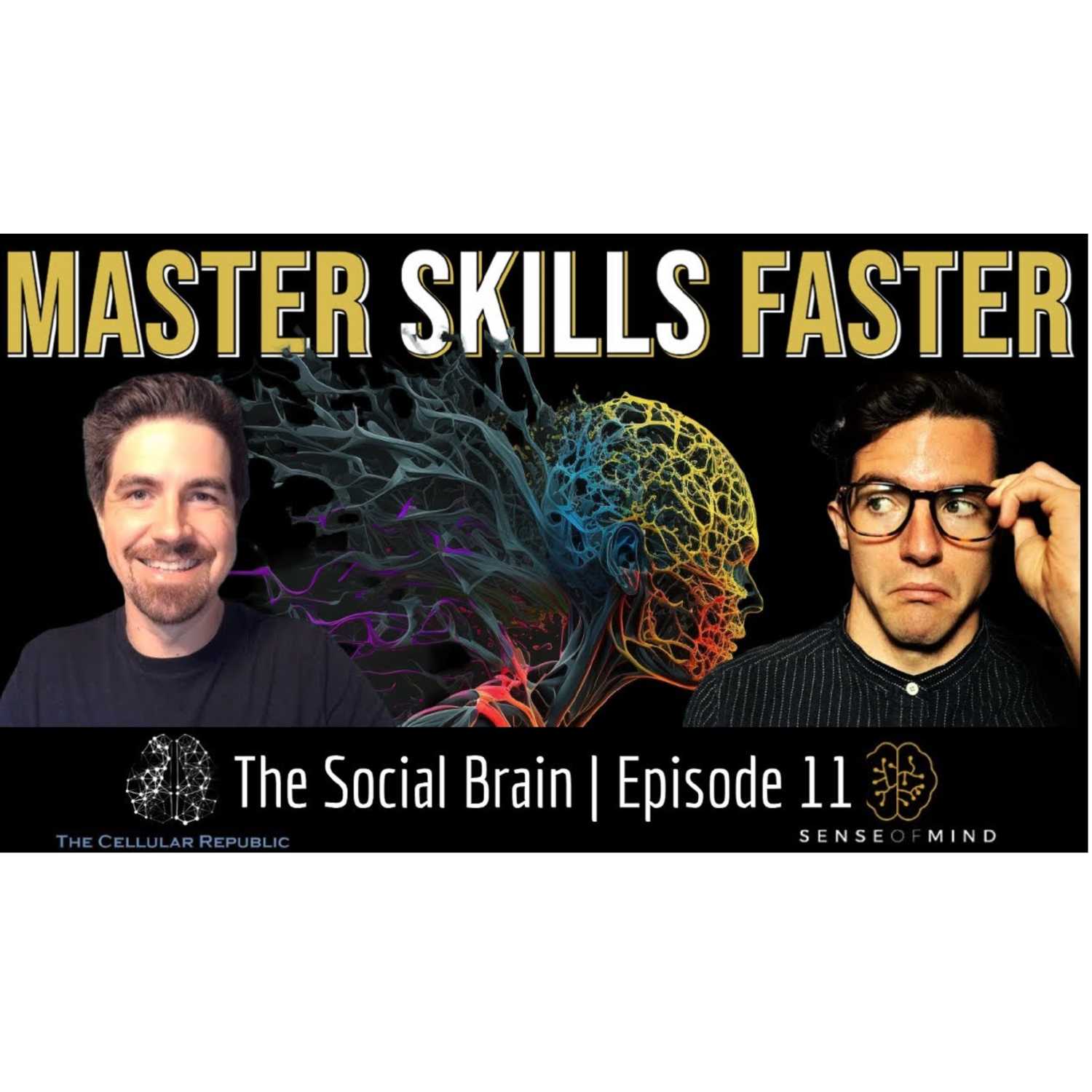 The Social BrainMaster Any Skill: Neuroscience of Motor LearningThese days, it's easy to take for granted the incredible complexity of motion, the way we are able to move through the world with such ease. We don't often think about the countless hours of practice, the countless micro-adjustments, and the countless neurons firing in our brain to make it all happen. Yet, motion is a form of intelligence, and understanding the neuroscience of motor learning can give us a tremendous power to master skills. We’ll be talking about the simple to implement principles from modern neuroscience that will revolutionize the way that you engage with the world an...2023-02-141h 01
The Social BrainMaster Any Skill: Neuroscience of Motor LearningThese days, it's easy to take for granted the incredible complexity of motion, the way we are able to move through the world with such ease. We don't often think about the countless hours of practice, the countless micro-adjustments, and the countless neurons firing in our brain to make it all happen. Yet, motion is a form of intelligence, and understanding the neuroscience of motor learning can give us a tremendous power to master skills. We’ll be talking about the simple to implement principles from modern neuroscience that will revolutionize the way that you engage with the world an...2023-02-141h 01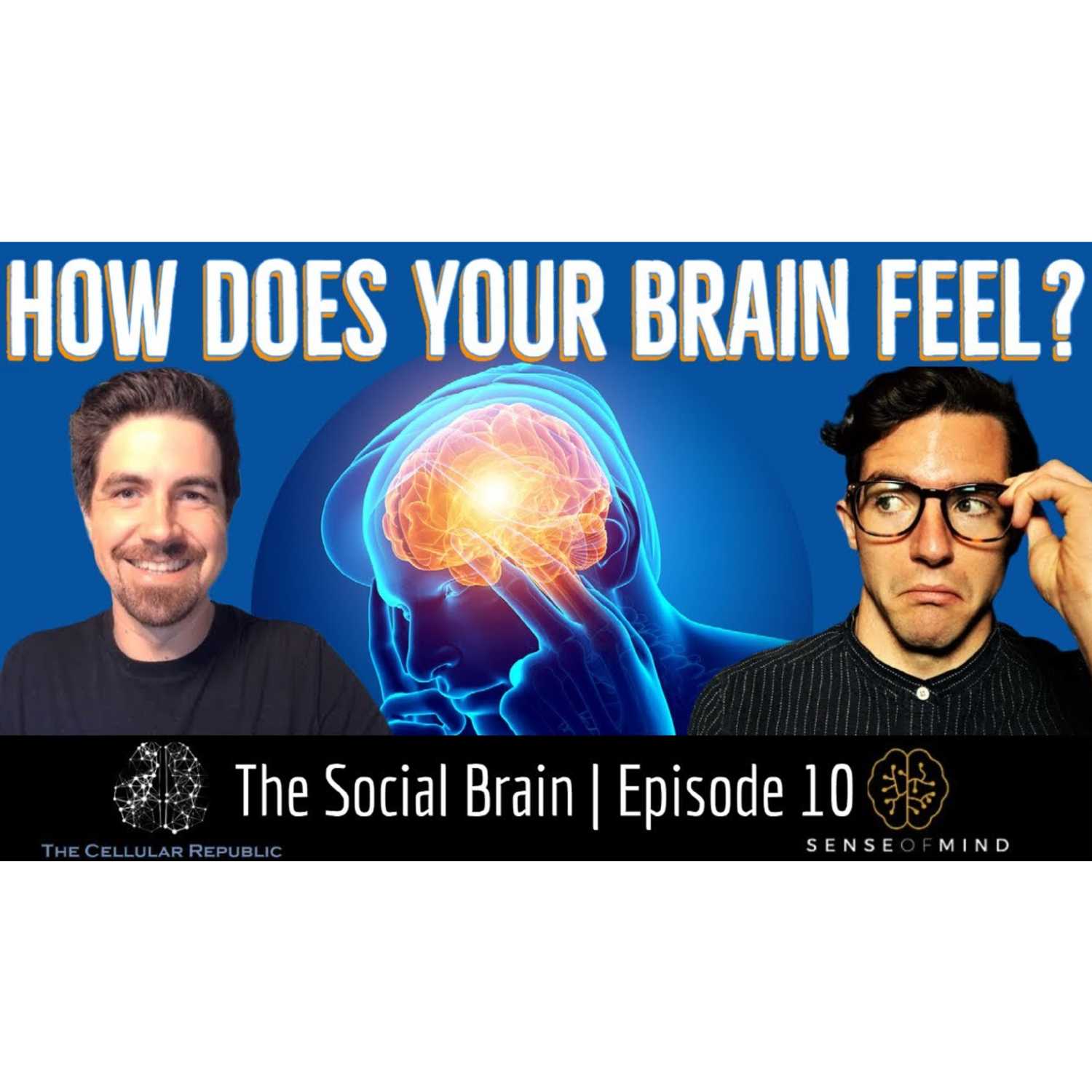 The Social BrainGet Out of Your Brain and Into Your Body: Interoception & PainTake a moment to feel what’s going on inside your body. Maybe your stomach is starting to feel hungry, or maybe it feels pleasantly full and satisfied. Maybe you don’t feel any specific area, but instead you sense a hum of life within you–your breath gently moving in and out and subtle tingles throughout your body. What’s amazing is that, while those feelings seem like they’re happening in your body, it’s not your body that’s actually feeling them! Instead, your brain is creating your experience of your body. Your brain can produce a feeling in y...2023-01-251h 01
The Social BrainGet Out of Your Brain and Into Your Body: Interoception & PainTake a moment to feel what’s going on inside your body. Maybe your stomach is starting to feel hungry, or maybe it feels pleasantly full and satisfied. Maybe you don’t feel any specific area, but instead you sense a hum of life within you–your breath gently moving in and out and subtle tingles throughout your body. What’s amazing is that, while those feelings seem like they’re happening in your body, it’s not your body that’s actually feeling them! Instead, your brain is creating your experience of your body. Your brain can produce a feeling in y...2023-01-251h 01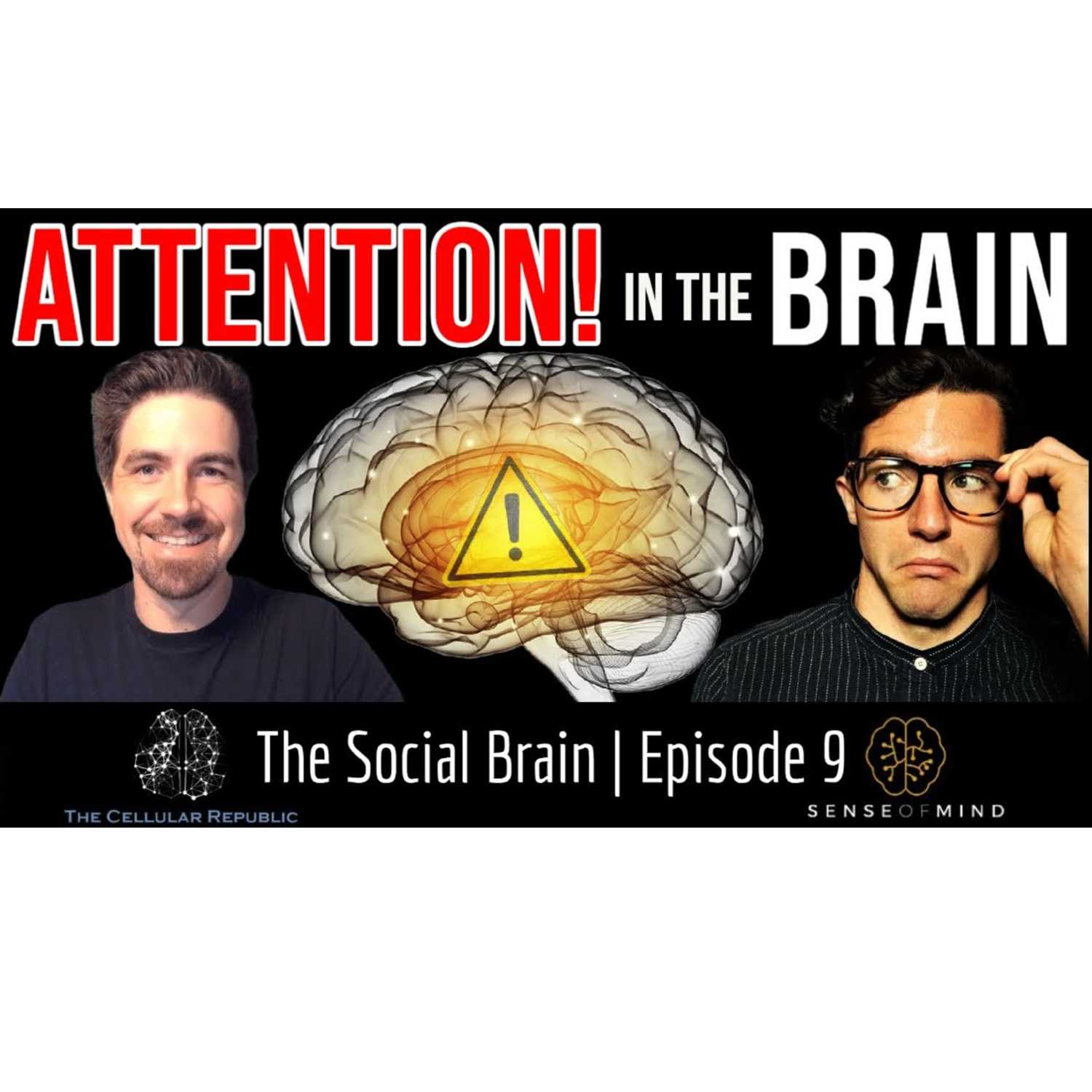 The Social BrainFOCUS! The Neuroscience of Attention and Strategies for Improving ItThese days, it's easy to feel overwhelmed and distracted by the barrage of notifications, emails, and tasks that vie for our attention. It can be hard to stay focused and give our undivided attention to the things that truly matter. Rather than reflexively reacting to the chaos, we must take the time to pause, reflect, and make intentional decisions about how to use the power of our attention. We often take for granted our ability to take control of our attention, forgetting that the brain's attention system is limited and requires us to be mindful and intentional in how...2023-01-121h 01
The Social BrainFOCUS! The Neuroscience of Attention and Strategies for Improving ItThese days, it's easy to feel overwhelmed and distracted by the barrage of notifications, emails, and tasks that vie for our attention. It can be hard to stay focused and give our undivided attention to the things that truly matter. Rather than reflexively reacting to the chaos, we must take the time to pause, reflect, and make intentional decisions about how to use the power of our attention. We often take for granted our ability to take control of our attention, forgetting that the brain's attention system is limited and requires us to be mindful and intentional in how...2023-01-121h 01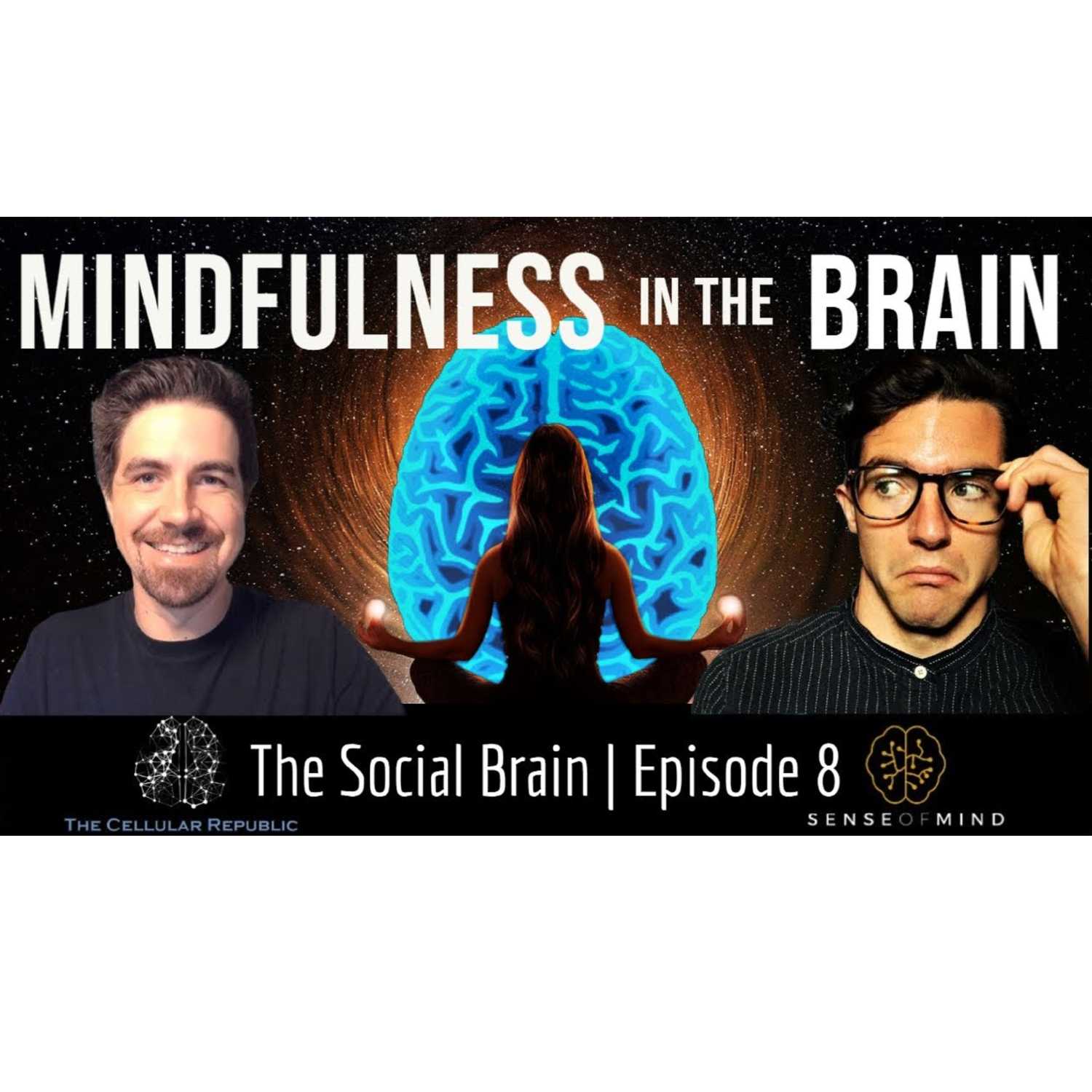 The Social BrainThe Neuroscience of Mindfulness: How Meditation Can Improve Your BrainWe spend a lot of time thinking about the future or the past, often at the expense of living in the present. As we talked about in the last episode, this kind of cognition is completely natural: it’s built into the brain’s default mode network. And while planning for the future, reviewing the past, and mind wandering are all important and healthy aspects of being human, they can also make us unhappy when they’re constantly taking us away from the present moment. Fortunately, there is a simple, research-backed method of countering the default mode, bringing us back t...2022-12-201h 01
The Social BrainThe Neuroscience of Mindfulness: How Meditation Can Improve Your BrainWe spend a lot of time thinking about the future or the past, often at the expense of living in the present. As we talked about in the last episode, this kind of cognition is completely natural: it’s built into the brain’s default mode network. And while planning for the future, reviewing the past, and mind wandering are all important and healthy aspects of being human, they can also make us unhappy when they’re constantly taking us away from the present moment. Fortunately, there is a simple, research-backed method of countering the default mode, bringing us back t...2022-12-201h 01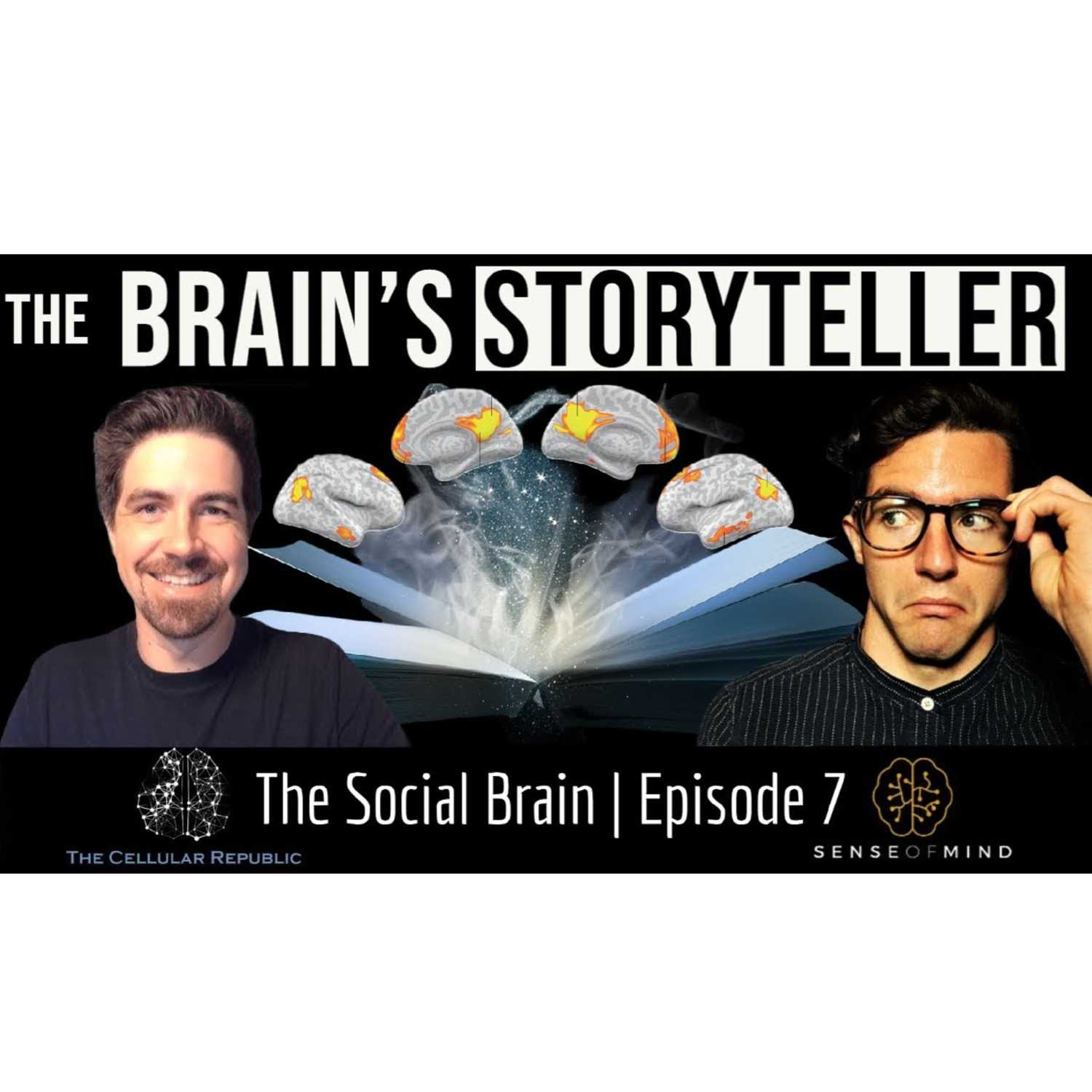 The Social BrainThe Default Mode Network: Integrating the past, present and futureWhat makes human cognition so much different from that of other animals? The short answer has to do with a single brain network: the default mode network (DMN). Humans are deliberative, able to flexibly combine the current moment with the past so that we can simulate and predict the future. We can remember things that occurred years and even decades ago and we can plan for life events that won't happen until well into our future. This allows us to build meaning and to develop identity and a sense of self. It allows us to build and navigate complex...2022-12-071h 00
The Social BrainThe Default Mode Network: Integrating the past, present and futureWhat makes human cognition so much different from that of other animals? The short answer has to do with a single brain network: the default mode network (DMN). Humans are deliberative, able to flexibly combine the current moment with the past so that we can simulate and predict the future. We can remember things that occurred years and even decades ago and we can plan for life events that won't happen until well into our future. This allows us to build meaning and to develop identity and a sense of self. It allows us to build and navigate complex...2022-12-071h 00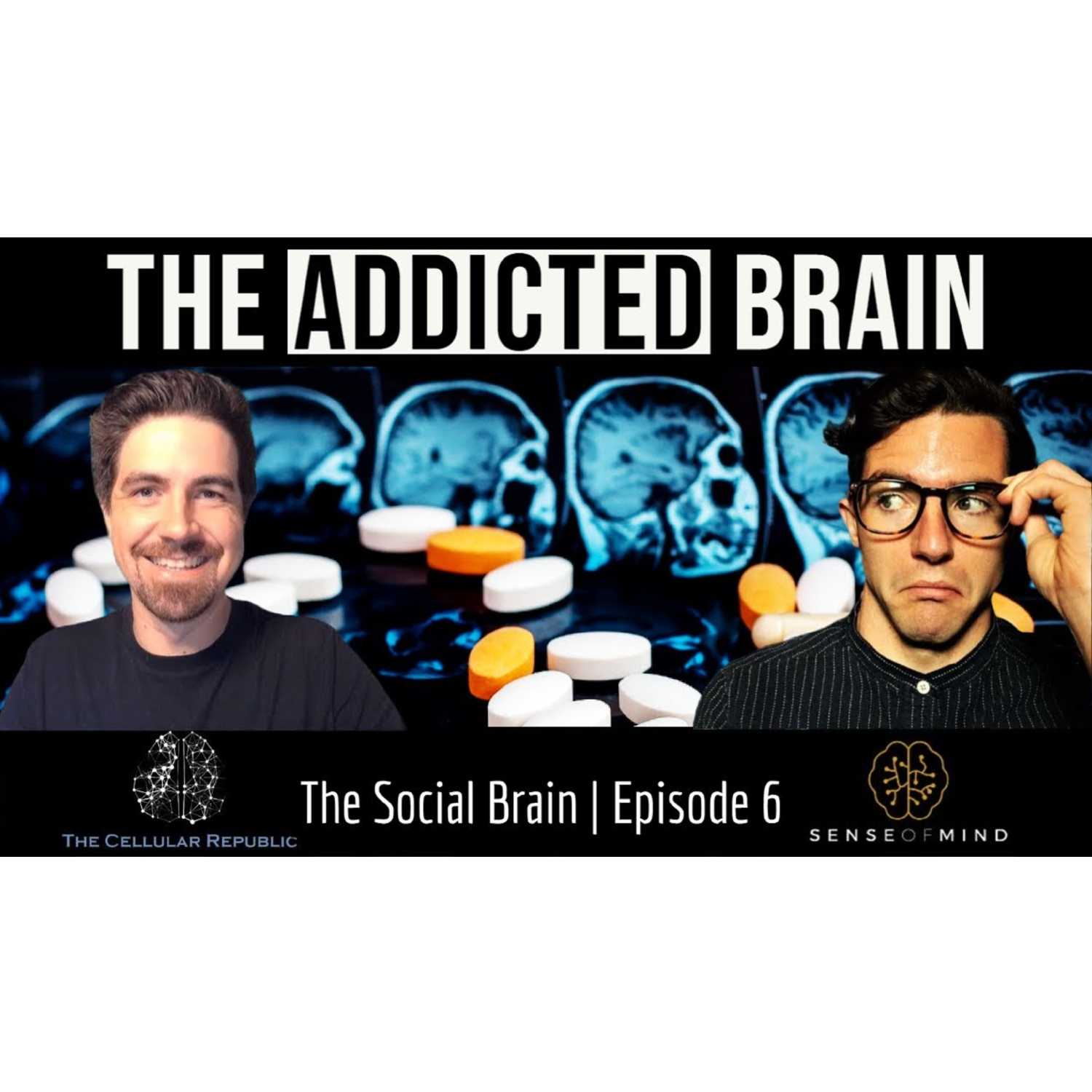 The Social BrainThe Addicted BrainHow does the human brain develop an addiction? The extremely high prevalence rates for disorders such as alcohol use disorder or drug use disorder (1 in 3 AUD lifetime prevalence, 1 in 10 DUD lifetime prevalence) suggests that addiction is not simply a disease but is instead a natural brain process that each and every one of us is susceptible to. The fascinating thing that is unraveling in the research is that the brain processes that lead to addiction are not drug or alcohol specific but instead are involved in every form of addiction (gambling, sex, shopping, technology... etc).2022-11-231h 02
The Social BrainThe Addicted BrainHow does the human brain develop an addiction? The extremely high prevalence rates for disorders such as alcohol use disorder or drug use disorder (1 in 3 AUD lifetime prevalence, 1 in 10 DUD lifetime prevalence) suggests that addiction is not simply a disease but is instead a natural brain process that each and every one of us is susceptible to. The fascinating thing that is unraveling in the research is that the brain processes that lead to addiction are not drug or alcohol specific but instead are involved in every form of addiction (gambling, sex, shopping, technology... etc).2022-11-231h 02 Sense of MindEpisode 43: Interoception: Why Emotions Feel the Way They DoSense of Mind Podcast Episode 43: Interoception: Why Emotions Feel the Way They Do
Watch here: https://youtu.be/5-8IfXRMM9g
Feelings are extremely important indicators of our wellbeing, whether they’re purely physical internal sensations (like a stomach ache) or emotional feelings (like the upset stomach you might get before you give a big presentation). Interoception is the sense of the inside of the body, and it provides the basis for both types of feelings. In this video, we’ll see how bodily sensations are turned into emotional feelings in the brain, and vice vers...2022-11-1810 min
Sense of MindEpisode 43: Interoception: Why Emotions Feel the Way They DoSense of Mind Podcast Episode 43: Interoception: Why Emotions Feel the Way They Do
Watch here: https://youtu.be/5-8IfXRMM9g
Feelings are extremely important indicators of our wellbeing, whether they’re purely physical internal sensations (like a stomach ache) or emotional feelings (like the upset stomach you might get before you give a big presentation). Interoception is the sense of the inside of the body, and it provides the basis for both types of feelings. In this video, we’ll see how bodily sensations are turned into emotional feelings in the brain, and vice vers...2022-11-1810 min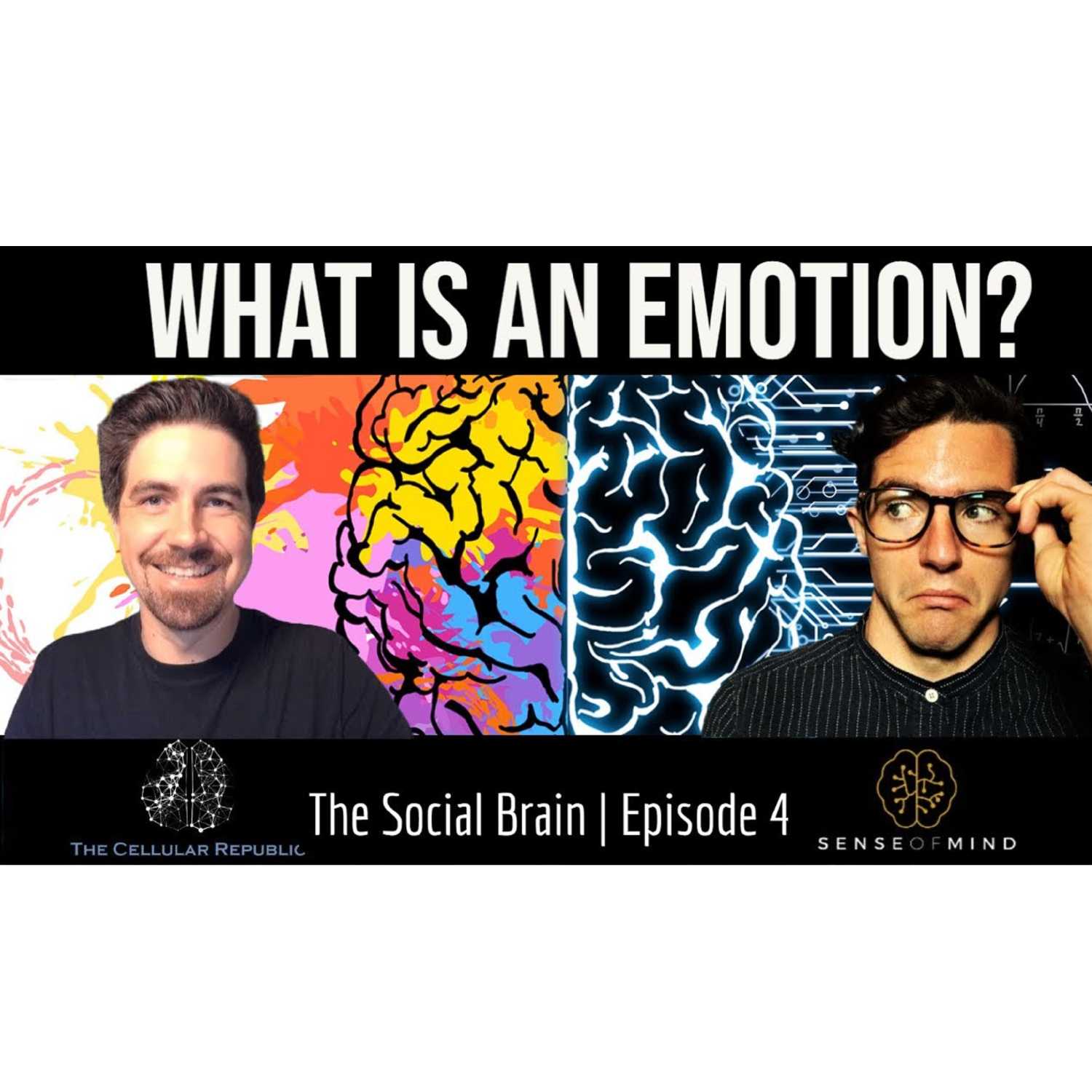 The Social BrainWhat is an Emotion?Everyone knows what an emotion is.. until they are asked to explain it. We all have a sense that we are living emotional lives and that these emotional drives have immense control of our behavior but it’s hard to say what that emotion actually is. Is it the physiology? Is it the brain activity? Can single cells have feelings or emotions without nervous systems? Are there such things as basic emotions (happiness, fear, anger, surprise.. etc) and are there dedicated brain systems for them?2022-11-061h 03
The Social BrainWhat is an Emotion?Everyone knows what an emotion is.. until they are asked to explain it. We all have a sense that we are living emotional lives and that these emotional drives have immense control of our behavior but it’s hard to say what that emotion actually is. Is it the physiology? Is it the brain activity? Can single cells have feelings or emotions without nervous systems? Are there such things as basic emotions (happiness, fear, anger, surprise.. etc) and are there dedicated brain systems for them?2022-11-061h 03 Sense of MindThe Social Brain Ep.4: Brain Decoding: The Science of ‘Mind Reading’Can scientists read your mind and figure out what you're thinking just by looking at your brain? Well, sort of. In this episode of The Social Brain with Taylor Guthrie (@The Cellular Republic) and I (@Sense of Mind) talk about a fascinating new area of cognitive neuroscience, called "brain decoding" as well as its counterpart, "brain encoding," and related topics. It all centers on the question posed above and the future applications, some of which are scary while others are inspiring.
-- What do you want us to cover in future episodes? Drop it in the comments!
...2022-10-181h 01
Sense of MindThe Social Brain Ep.4: Brain Decoding: The Science of ‘Mind Reading’Can scientists read your mind and figure out what you're thinking just by looking at your brain? Well, sort of. In this episode of The Social Brain with Taylor Guthrie (@The Cellular Republic) and I (@Sense of Mind) talk about a fascinating new area of cognitive neuroscience, called "brain decoding" as well as its counterpart, "brain encoding," and related topics. It all centers on the question posed above and the future applications, some of which are scary while others are inspiring.
-- What do you want us to cover in future episodes? Drop it in the comments!
...2022-10-181h 01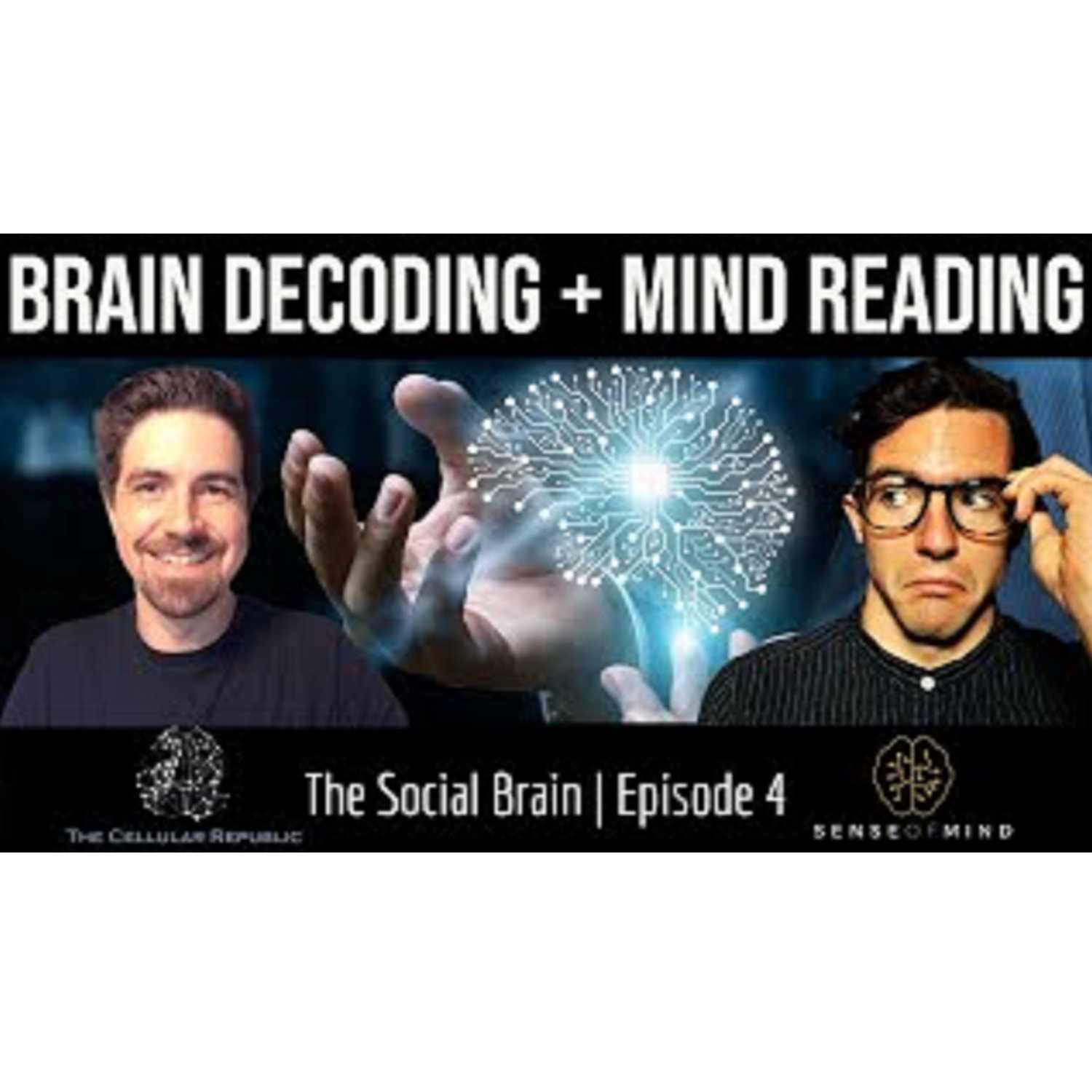 The Social BrainBrain Decoding: The Science of 'Mind Reading'Neuroscientists are on the cusp of cracking the neural code. Just by looking at the brain data, computer algorithms are reading out and recreating what people saw and listened to. Learn how we got there and what the future has in store.2022-10-181h 01
The Social BrainBrain Decoding: The Science of 'Mind Reading'Neuroscientists are on the cusp of cracking the neural code. Just by looking at the brain data, computer algorithms are reading out and recreating what people saw and listened to. Learn how we got there and what the future has in store.2022-10-181h 01 Sense of MindThe Social Brain Ep.3: Getting on the Same WavelengthBrain synchronization and shared neural representations! In episode 3 of The Social Brain with The Cellular Republic (Taylor Guthrie) and me, we talk about how brain activity in two different people's brains can become synchronized in social situations. We also talk about Taylor's research into the fact that people who are friends tend to show similar patterns of brain activity in various scenarios.
--
What do you want us to cover in future episodes? Drop it in the comments!
Link to follow: Make sure to subscribe to Taylor's Channel: @The Cellular Republic Subscribe to @Sense of Mi...2022-10-1058 min
Sense of MindThe Social Brain Ep.3: Getting on the Same WavelengthBrain synchronization and shared neural representations! In episode 3 of The Social Brain with The Cellular Republic (Taylor Guthrie) and me, we talk about how brain activity in two different people's brains can become synchronized in social situations. We also talk about Taylor's research into the fact that people who are friends tend to show similar patterns of brain activity in various scenarios.
--
What do you want us to cover in future episodes? Drop it in the comments!
Link to follow: Make sure to subscribe to Taylor's Channel: @The Cellular Republic Subscribe to @Sense of Mi...2022-10-1058 min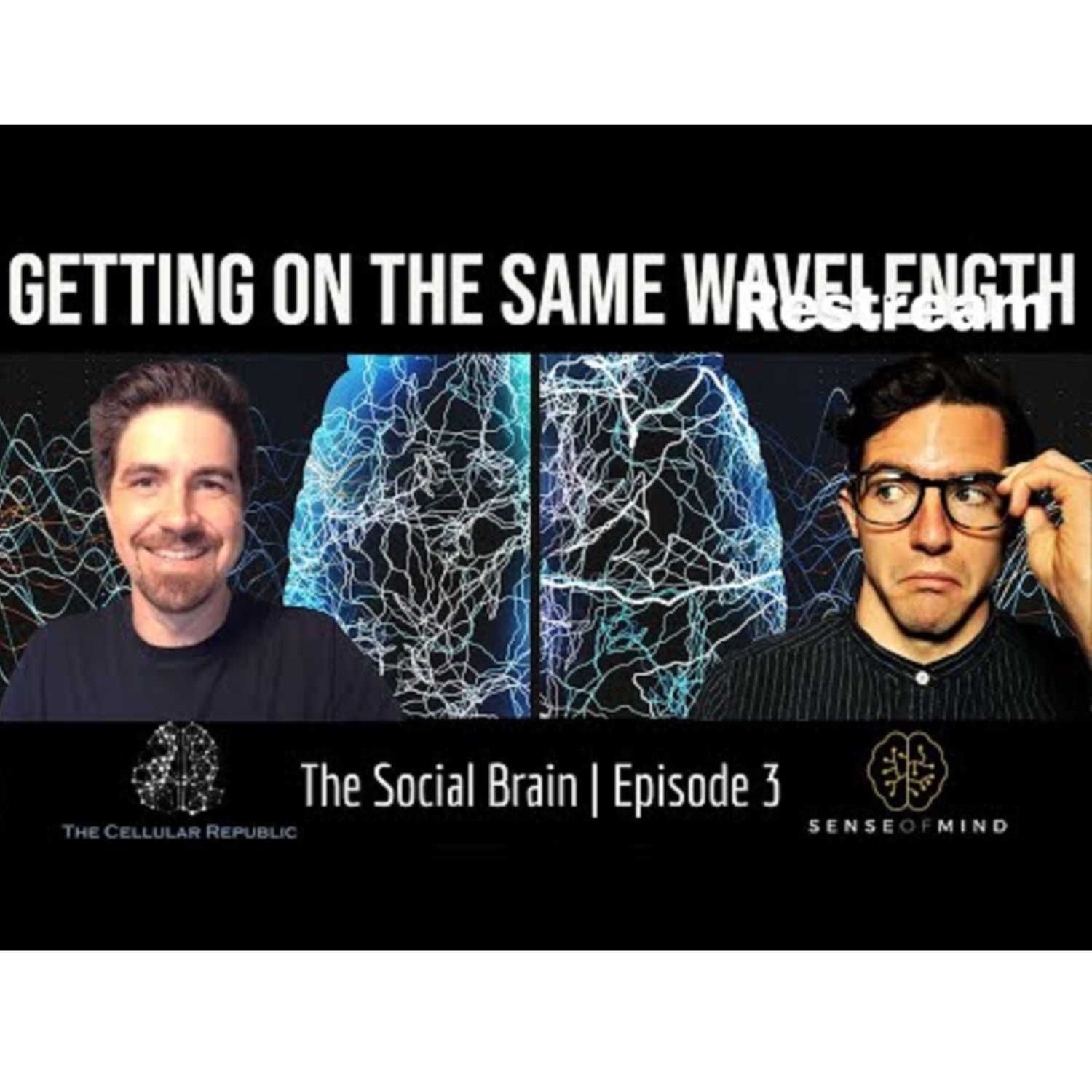 The Social BrainGetting on the Same Wavelength: How our Brains Sync UpWe all know the feeling of being in sync with one another or feeling like we're understood by those around us. Is there something actually going on in our brains during these moments? Do our brains get in sync with one another and get "on the same wavelength"? Does the strength of our social relationships affect this whole process? We'll dig into all of this and so much more in this episode of The Social Brain! Sorry in advance for the sound quality.. there were technical issues during the live cast.2022-10-0558 min
The Social BrainGetting on the Same Wavelength: How our Brains Sync UpWe all know the feeling of being in sync with one another or feeling like we're understood by those around us. Is there something actually going on in our brains during these moments? Do our brains get in sync with one another and get "on the same wavelength"? Does the strength of our social relationships affect this whole process? We'll dig into all of this and so much more in this episode of The Social Brain! Sorry in advance for the sound quality.. there were technical issues during the live cast.2022-10-0558 min Sense of MindThe Social Brain Ep.2: The Rise of Social NeuroscienceNeuroscience has a fascinating and at times funny history but it is an extremely new scientific discipline. Explore with us how neuroscience got it's start and how this led to the rise of fields like social and cognitive neuroscience. This is the second episode of a new twice monthly podcast I'm doing with social neuroscientist Taylor Guthrie. Taylor is a researcher, PhD student, and lecturer at the University of Oregon, and he runs the neuroscience YouTube channel, "The Cellular Republic."
--
Check out The Social Brain: https://podcasts.apple.com/us/podcast/the-social-brain/id1645182617
2022-09-241h 00
Sense of MindThe Social Brain Ep.2: The Rise of Social NeuroscienceNeuroscience has a fascinating and at times funny history but it is an extremely new scientific discipline. Explore with us how neuroscience got it's start and how this led to the rise of fields like social and cognitive neuroscience. This is the second episode of a new twice monthly podcast I'm doing with social neuroscientist Taylor Guthrie. Taylor is a researcher, PhD student, and lecturer at the University of Oregon, and he runs the neuroscience YouTube channel, "The Cellular Republic."
--
Check out The Social Brain: https://podcasts.apple.com/us/podcast/the-social-brain/id1645182617
2022-09-241h 00 Sense of MindThe Social Brain Ep.1: Life is a Social ProcessFrom single cells within an organism to individuals within a society, all living things engage in social processes. Join us and explore how these dynamic social interactions shaped evolution and made our brains what they are today. This is the first episode of a new twice monthly podcast I'm doing with social neuroscientist Taylor Guthrie. Taylor is a researcher, PhD student, and lecturer at the University of Oregon, and he runs the neuroscience YouTube channel, "The Cellular Republic."
Check out The Social Brain: https://podcasts.apple.com/us/podcast/the-social-brain/id1645182617
Check o...2022-09-2458 min
Sense of MindThe Social Brain Ep.1: Life is a Social ProcessFrom single cells within an organism to individuals within a society, all living things engage in social processes. Join us and explore how these dynamic social interactions shaped evolution and made our brains what they are today. This is the first episode of a new twice monthly podcast I'm doing with social neuroscientist Taylor Guthrie. Taylor is a researcher, PhD student, and lecturer at the University of Oregon, and he runs the neuroscience YouTube channel, "The Cellular Republic."
Check out The Social Brain: https://podcasts.apple.com/us/podcast/the-social-brain/id1645182617
Check o...2022-09-2458 min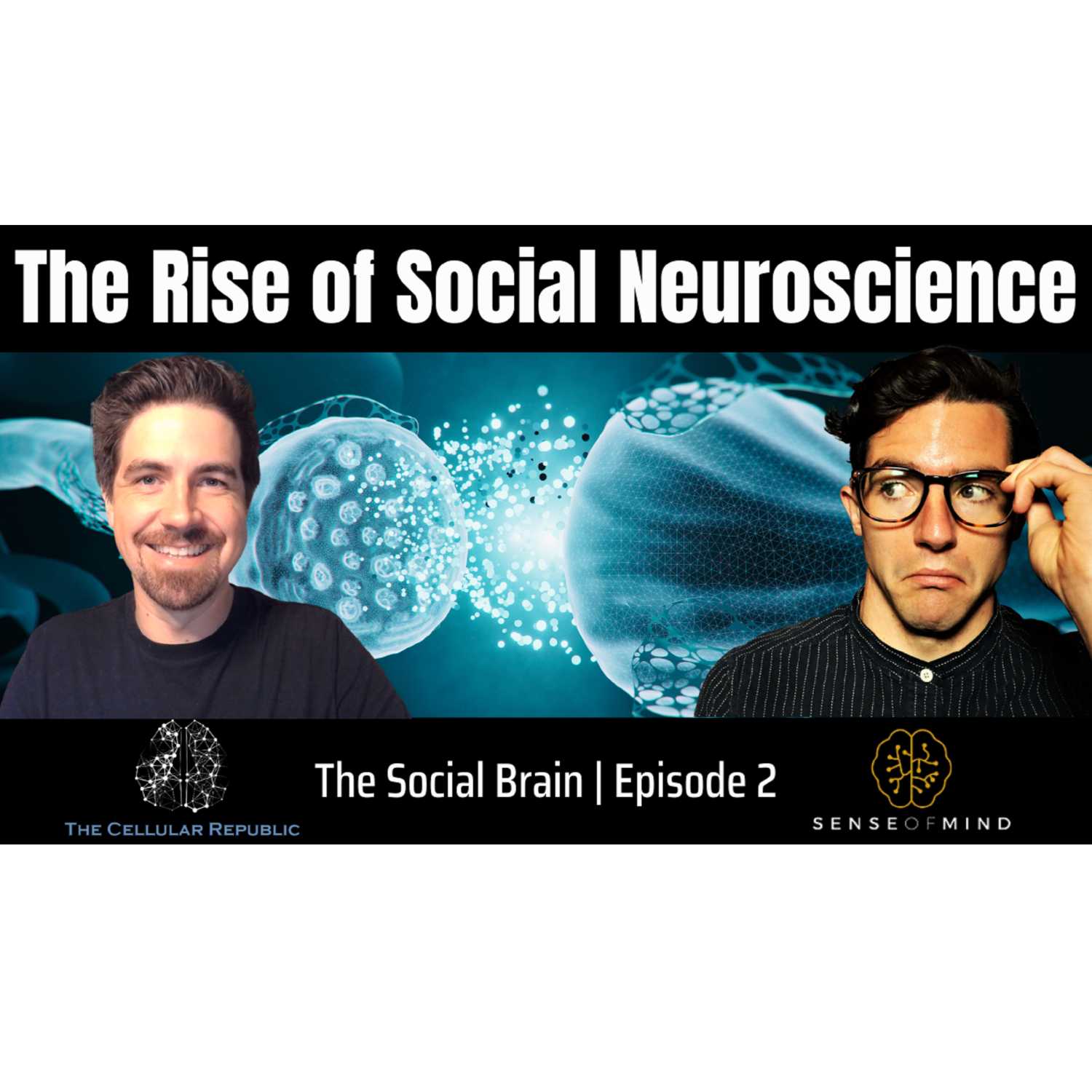 The Social BrainThe Rise of Social NeuroscienceNeuroscience has a fascinating and at times funny history but it is an extremely new scientific discipline. Explore with us how neuroscience got it's start and how this led to the rise of fields like social and cognitive neuroscience.2022-09-221h 00
The Social BrainThe Rise of Social NeuroscienceNeuroscience has a fascinating and at times funny history but it is an extremely new scientific discipline. Explore with us how neuroscience got it's start and how this led to the rise of fields like social and cognitive neuroscience.2022-09-221h 00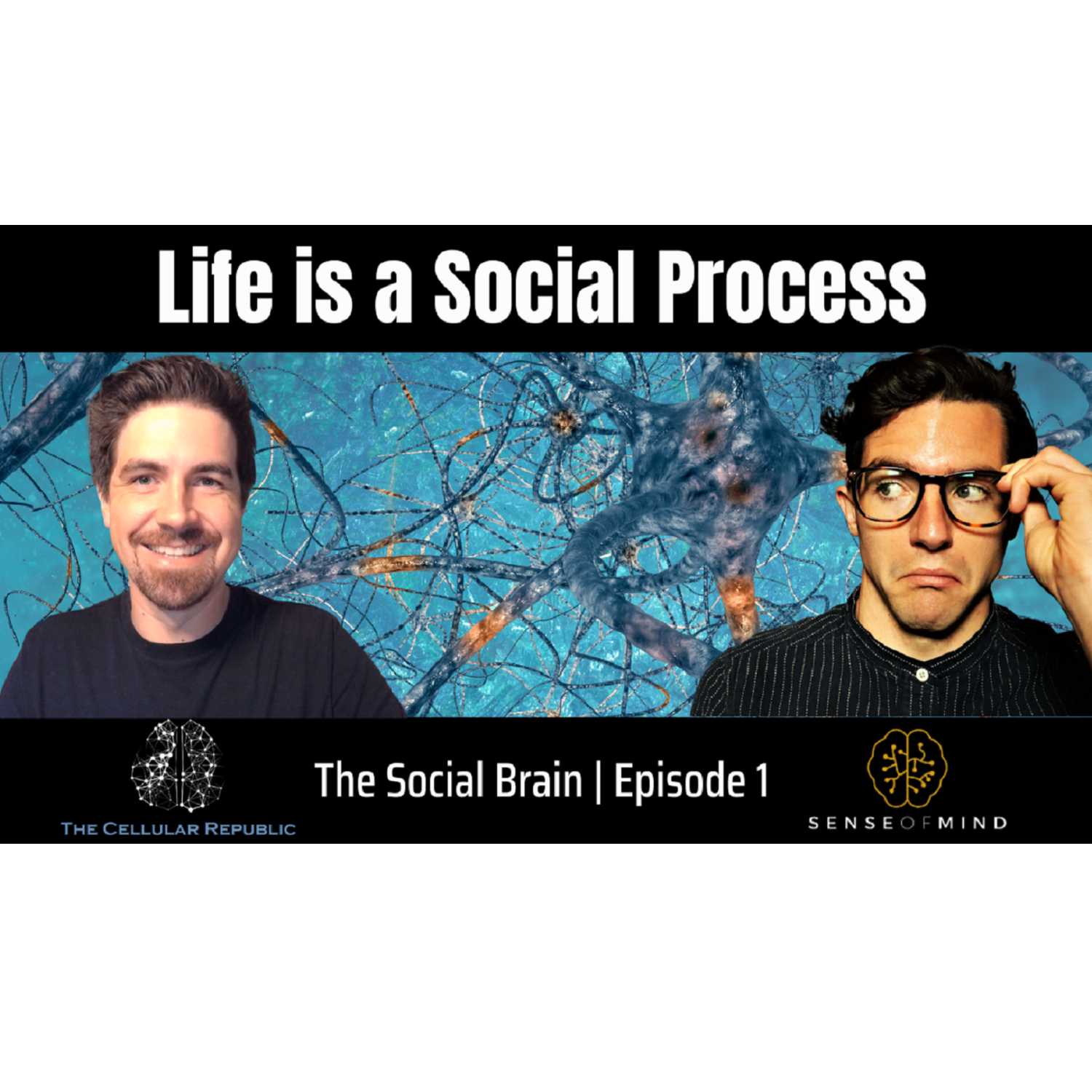 The Social BrainLife is a Social ProcessFrom single cells within an organism to individuals within a society, all living things engage in social processes. Join us and explore how these dynamic social interactions shaped evolution and made our brains what they are today.2022-09-1258 min
The Social BrainLife is a Social ProcessFrom single cells within an organism to individuals within a society, all living things engage in social processes. Join us and explore how these dynamic social interactions shaped evolution and made our brains what they are today.2022-09-1258 min Sense of MindEpisode 26: Prefrontal CortexThinking Tools Podcast Episode 26 - Prefrontal Cortex
Watch the video here: https://youtu.be/p04xZjZUl2o
The prefrontal cortex (PFC) allows us to engage in what scientists call “cognitive control” (also known as “executive functioning”) and it is crucial for our sense of self. This video explains what the PFC is, why this brain region’s properties make it well suited to cognitive control and the sense of self, and how each of the subdivisions of the prefrontal cortex contributes to these functions. Includes interview clips with neuroscientists David Badre (Brown University), Gregory Hickok (UC Irvine...2022-05-2034 min
Sense of MindEpisode 26: Prefrontal CortexThinking Tools Podcast Episode 26 - Prefrontal Cortex
Watch the video here: https://youtu.be/p04xZjZUl2o
The prefrontal cortex (PFC) allows us to engage in what scientists call “cognitive control” (also known as “executive functioning”) and it is crucial for our sense of self. This video explains what the PFC is, why this brain region’s properties make it well suited to cognitive control and the sense of self, and how each of the subdivisions of the prefrontal cortex contributes to these functions. Includes interview clips with neuroscientists David Badre (Brown University), Gregory Hickok (UC Irvine...2022-05-2034 min Sense of MindEpisode 24: Social Neuroscience and The Self (Interview with Taylor Guthrie)Thinking Tools Podcast Episode 24 -
Understanding social neuroscience requires understanding the neuroscience of the self. That’s because our social interactions are deeply intertwined with how we understand ourselves, our goals, needs, desires, and dreads. Social cognitive neuroscience, one field that studies the brain in social circumstances, has discovered much regarding how our brains process information about ourselves and others.
In this episode of the Thinking Tools Podcast, I speak with Taylor Guthrie, the creator of one of my favorite YouTube channels, @The Cellular Republic (https://www.youtube.com/channel/UCUNqseoOq5DfzwCRI-7ZAow).
The...2022-05-061h 04
Sense of MindEpisode 24: Social Neuroscience and The Self (Interview with Taylor Guthrie)Thinking Tools Podcast Episode 24 -
Understanding social neuroscience requires understanding the neuroscience of the self. That’s because our social interactions are deeply intertwined with how we understand ourselves, our goals, needs, desires, and dreads. Social cognitive neuroscience, one field that studies the brain in social circumstances, has discovered much regarding how our brains process information about ourselves and others.
In this episode of the Thinking Tools Podcast, I speak with Taylor Guthrie, the creator of one of my favorite YouTube channels, @The Cellular Republic (https://www.youtube.com/channel/UCUNqseoOq5DfzwCRI-7ZAow).
The...2022-05-061h 04